(Seeking the Infinite; Mahakumbh 2025 is a deeply reflective and visually captivating book that chronicles a once-in-a-lifetime spiritual journey undertaken by Yakub Mathew and his wife, Shilpa, during the Maha Kumbh Mela – an extraordinary event that occurs once every 144 years. What began as a celebration of Yakub’s 60th birthday with his wife and 17 close friends from across the globe evolved into a profound collective experience that inspired the creation of this book. More than just a travelogue, this book is a tapestry of personal insights, spiritual revelations, and philosophical inquiry. It blends vivid photographs, intimate reflections, and diverse perspectives from Yakub’s fellow travelers, capturing the sacred atmosphere of the Kumbh Mela and its deep emotional and metaphysical impact.
The following reflections on the world famous anthology by Yakub Mathew are by Usha Akella, an Austin-based poet, who has authored 12 books that include poetry and spiritual musical dramas)
In our times, wherein one feels pressured to cast her/his lot with Left or Right—and other fractured polarities—and be damned either way, a bold book arrived shining and fearless at the IAAC Lit Fest 2025 to announce the possibilities of reconciliation—and harmony. A mighty event rooted in a myth of nectar, and a mighty book exploring the infinite, no less—Seeking the Infinite redefines the Mahakumbh as one of humanity’s heritages, not solely Indian or Hindu. The book draws our attention to water as a fundamental metaphor of purification, unity, and surrender. In its pages the Mahakumbh is recognized as a clarion call from India of the truth of one ultimate religion—humanity. As a reader you can position yourself on the shore of this book, and marvel at the timeless ripples of faith ignited by hope for a healed world.
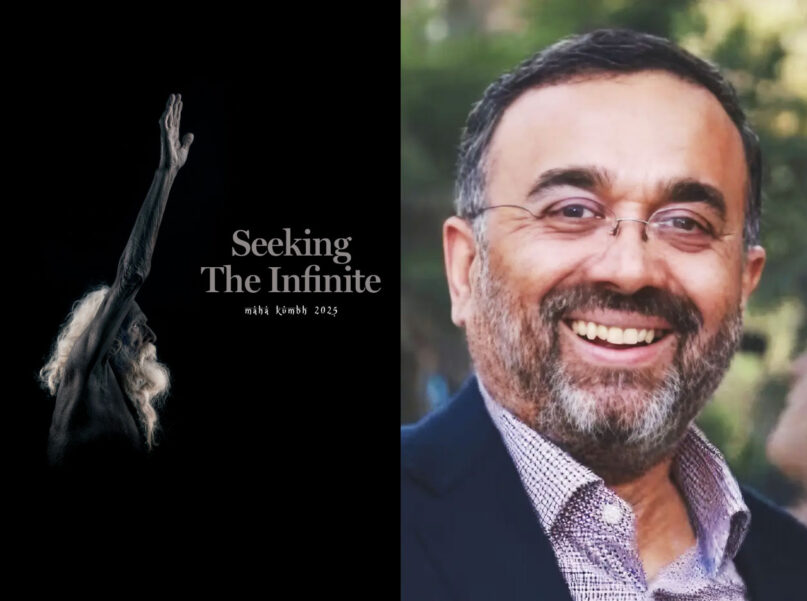
Dedicated to the journey within, Yakub Mathhew’s book aims to capture the gravitas of the Mahakumbh—a once in 144 years riverine confluence termed Triveni Sangam (reflected in the skies by a rare astronomical configuration of Jupiter, Sun and Moon/the orbital revolution of Jupiter around the sun) in Prayagraj that welcomed an estimated 640 million devotees in 2025. The three rivers whose waters become a single stream are read symbolically in various fashion but mostly as an emblem of unity. That one of these rivers is mythical (Saraswati) does not hamper faith. And that a gathering of such staggering numbers rolled off peacefully, across nearly two months is a miracle in itself. A coffee table book with stunning photographs laid across 246 pages and lit by luminous quotes and narratives, Seeking the Infinite has immortalized the Mahakumbh as never before.
The very dedication states the resolution and celebration of paradoxes—the outward pilgrimage is veritably the turning within to touch an ineffable shore we carry in our souls. The book in its scope, aim and production is a Mahakumbh of an undertaking unafraid to boldly go toward impeccable standards of production, and embark on an archaeology of semantics of the event. Turning the pages of this book feels like a mimicry of the journeying, by entering the preliminary waters of the first chapter of ‘Blessings’ by a mystic, Hindu Yogis and a Cardinal (Sadhguru, Swami Avdeshanand Giri Maharaj ji, His eminence Oswald Cardinal Gracias & Maharaj Radhanath Swamiji), onward to deeper waters of musings and explorations—finally the reader emerges refreshed by India’s eternal reverberating spiritual current. And is reminded of a tenacious civilization that has neither been afraid to ask the deepest questions, nor hesitated to attempt to answer them. Answers that have buffeted along seemingly contradictory banks of form and formless, faith and agnosticism, ritual and dhyana—finally averring the human soul as the ultimate anthem of mystery. The overlapping waters of three rivers continue to transfer to the pages of this book asking for awakening from narrow and bigoted definitions of religion.
Yakub Matthew states his vision early on casting the Mahakumbh as an inter-national heritage not constrained by geographical borders. Though he defines himself as an accidental author Matthew is not an accidental seeker. The journey undertaken by a Syrian Christian New York-based banker with his beloved wife, and a bevy of 19 seeker friends to celebrate his 60th birthday and life post a dire illness has spawned what will be an everlasting tribute to the Mahakumbh. That he sought such an experience to define a rite of passage in human life is an indicator of the predilections of his soul. Raised by a mother widowed young in Delhi, his childhood is reminiscent with interactions and mentorship by Mother Teresa and His Holiness Bishop Paulos Gregorios. Perhaps the first seeds of faith were laid at this time. Also, raised by uncles (P.C. Alexander and P. M. Thomas) who were public servants brought Yakub into the ken of the political and powerful—thus the two worlds of temporal and spiritual spanned the orb of his growing years. Yakub Matthew was never to forget that a delicate balance of human and cosmic forces shapes a life. Schooled in St. Xavier’s and St Stephens College, a typical brand of Indian Christianity contoured by an Indian world view shaped his humanist values, and global perspective. After some world travels, he finally went on to navigate his worldly role as a banker in New York City abiding also by his inner yearnings. A privileged life has not tainted his wonder of existence or barred his unceasing engagement with subtler mysteries.
The Kumbh till this visit was seared in his memory only as a theatrical event of human drama, but in 2025 it alchemized spiritually into an experiential landmark expressed as, “I was just an insignificant speck of dust on the soap bubble of universe.” The riotous burgeoning of sounds and sights around him during the two days, were not cacophony but the very pulsations of his own soul; as he dipped into the waters as one of the multitudes, he felt blessed for the opportunity to offer prayers ‘for peace in this turbulent world.’ The mammoth spectacle of humanity, and human endeavor brought forth an utterance, “Shakti in Bhakti!” from him, and the Mahakumbh translated into a riveting passage of transformation too deep for words—reaffirming the knowledge that the microcosm and the macrocosm vibrate together: My soul too sang along with the music of the spheres.
A delightful potpourri of profound impressions rooted in personal experience, literary penmanship, academic scholarship, and spiritual insight suffuse the book. The musings uncover multi dimensions of the Mahakumbh from mythic to astronomic by luminaries in various fields such as spirituality, fashion, religion, administration, medicine, journalism, business, politics, theater, academia, sports, film, art, and music.
The scintillating writerly roster of names that adorn the book are Pujya Swami Chidanand Saraswatiji, Ayaan Ali Bhangash, Kabir Bedi, Rajarshi Bhupendra Modi, Harish Parvatheni, Kamalesh Sharma, Satya Hinduja, Kirti Azad, Meenakshi Leki, Dr. Sashi Tharoor, George Matthew, Sardar Manpreet Singh Badal, Lord Meghnand Desai, Sunil Bahadur Thapa, Thomas Easley, Reverend Dr. Victor Lobo, Reverend Father Thomas V. Kunnukal, Dr. Navin Mehta, Lady Kishwar Desai, Sagarika Ghose, Dr. Pevez Ahmed, Sandeep Chakravorty, Prakash Shah, Radhika Bhattacharya Shah, Jayasri Burman, Mohit Burman, Farokh Engineer, Dr. Jagdish Bhagwati, Muzaffar Ali, Bibhu Mohapatra, Dr. Sushma Dhar Kaul, Jamuna Tamang, Brahm Rishi, Dr Mona Milka Singh, Dr. Arvind Panagariya, Rajat Bahri, Neeha Nagpal, Brahm Rishi, Kavita Tankha, Yuri Mouchan, Sachit Soni, Raj Shahani, Anjum Nath, Didi Krishna Kumari, Rakesh Kaul, Ashi Sonam Choden Dorji, Sadhvi Bhagwati Saraswati, Haji Syed Salman Chisty, Swami Swaroopananda, Anjum Nath, Abu Samuel, Anupam Kher, Ashok Hinduja, Dr. Dinesh Singh, Swami Sarvapriyananda, Dr. Subramanian Swamy, Mokshapriya, Sooryanarayana Swami, Suhel Seth, Yogmata Keiko Ajkawa, Marcia De Luca, Radhe Jaggi, Neelima Dalmia Adhar, Dr. Acintya Moulick, Barkha Dutt, and Ustad Hidayat Khan.
Even Technology played its part in the 2,750 AI driven CCTV cameras monitoring the festivities as we are reminded by Amitabh Kant. Dr. Dinesh Singh creatively interprets the legendary River Saraswati as the flow of humanity itself. Dr. Achintya Moulick brilliantly perceives his surgical work to be his own Mahakumbh—he understands it as another kind of confluence of science and faith where he has witnessed miracles; the ‘hospital a temple, every heartbeat a mantra’. Such creative and profound writerly narratives mark the book as a treasure house of fresh insights.
But the book must not mistakenly be read as a page turner of the famous, high or mighty but rather viewed as the melding of voices to form one voice of homage to capture the mightiest sacred geo-astronomical occurrence in India—which in turn ignites a reexamination of India’s role in the world, and her eternal/everlasting (Sanatan} message of unity in diversity.
Even though, the tumult has quieted down, millions have returned home, the waters lap on in all those who dipped into the sangam. The pluralistic waters of the Mahakumbh are representative of the eternal seeking for the divine of various religious voices fired by the single current of—yearning for the transcendental. Water has no boundary, it surges and flows, turns corners, and erodes hardened hearts. The Mahakumbh demands all masks and attires are surrendered to her waters, to find a single skin underneath of—humanity. It is a purification rite that restores the truth underlying all human narratives.
And, symbolically we can still dip in the pages of this book to relive the thrill of the event. For those such as myself, who could not attend the event, reading the book is a reenactment of the ritual to experience its excitement and energy. The book has done a great service immortalizing the Mahakumbh making it tangible for posterity. Finally, we grasp that Prayagraj, a holy site of pilgrimage like Mecca, Jerusalem or Kashi is the human heart where we discover the reconciliation of all contradictions and paradoxes. Where Love finally is the beginning, remainder, and the destination in all our inner and outer journeys. As is expressed so beautifully: This book will help us listen more deeply—to the longings of our own heart, to the silent music of creation, and to the voice of the One who speaks through both—His eminence Oswald Cardinal Gracias.
Author: Usha Akella, Austin-based poet, has authored 12 books that include poetry and spiritual musical dramas. She has been invited to numerous international poetry festivals. She is the founder of the decade-old Matwaala (www.matwaala.com) launched to amplify South Asian diasporic poets, and host of www.the-pov.com, a website of curated interviews. Her editorial works include a ‘A House of Words’, a festschrift dedicated to Keki Daruwalla published by the Sahitya Akademi.



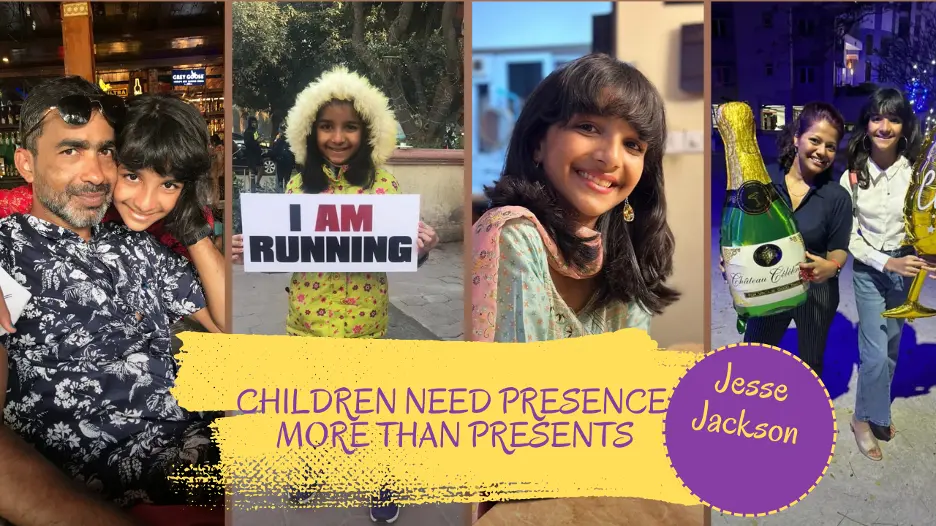







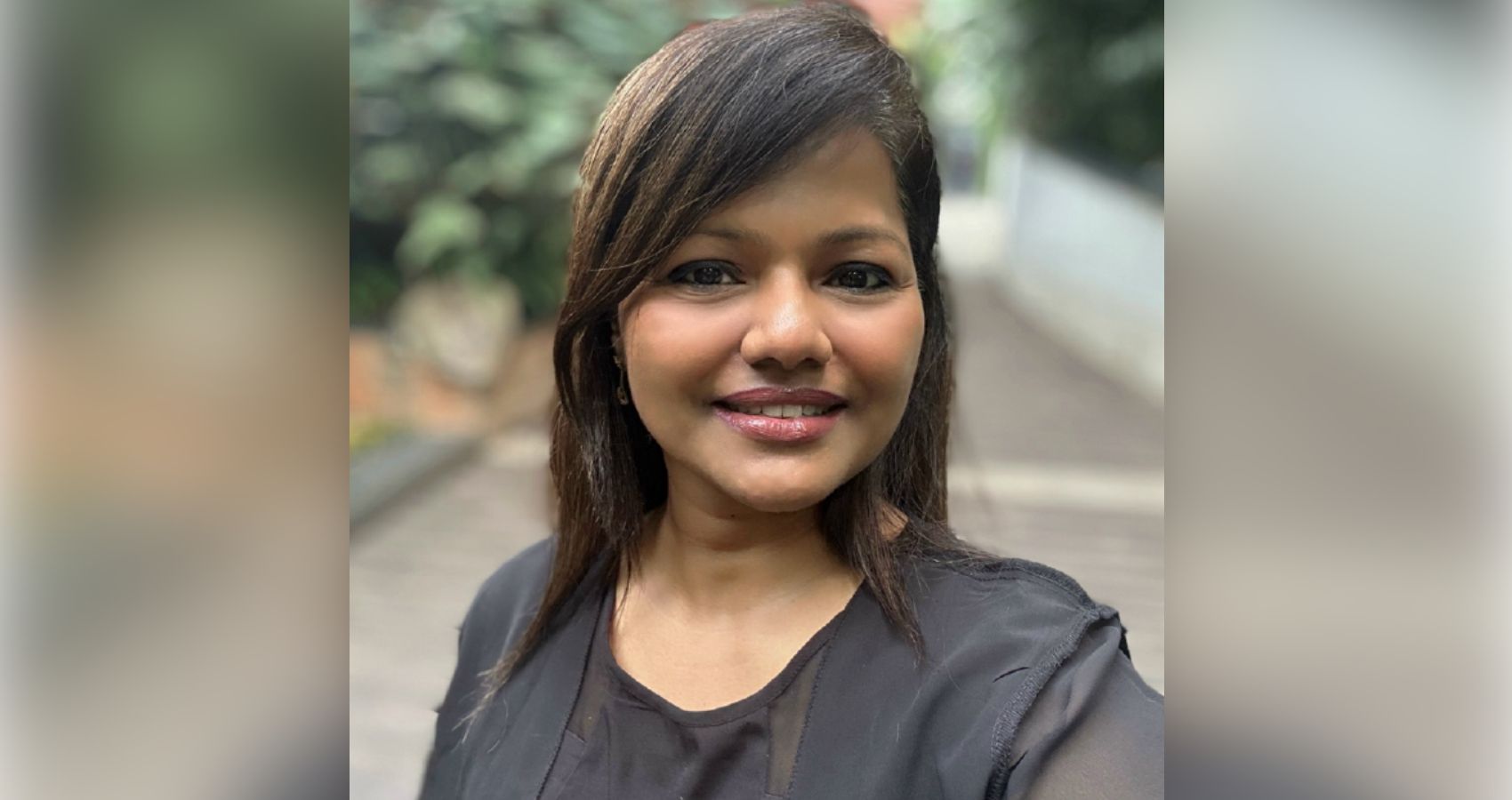
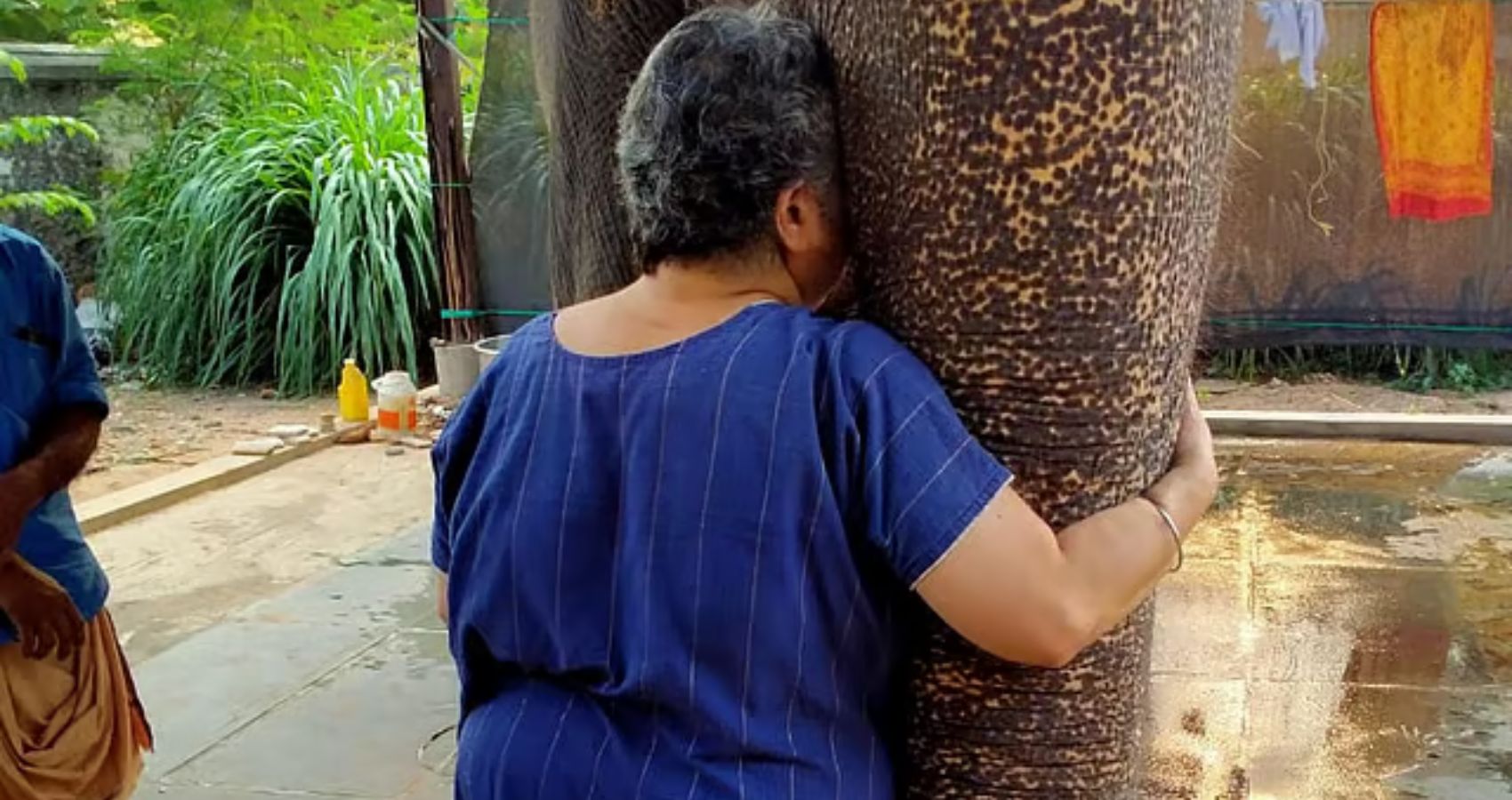
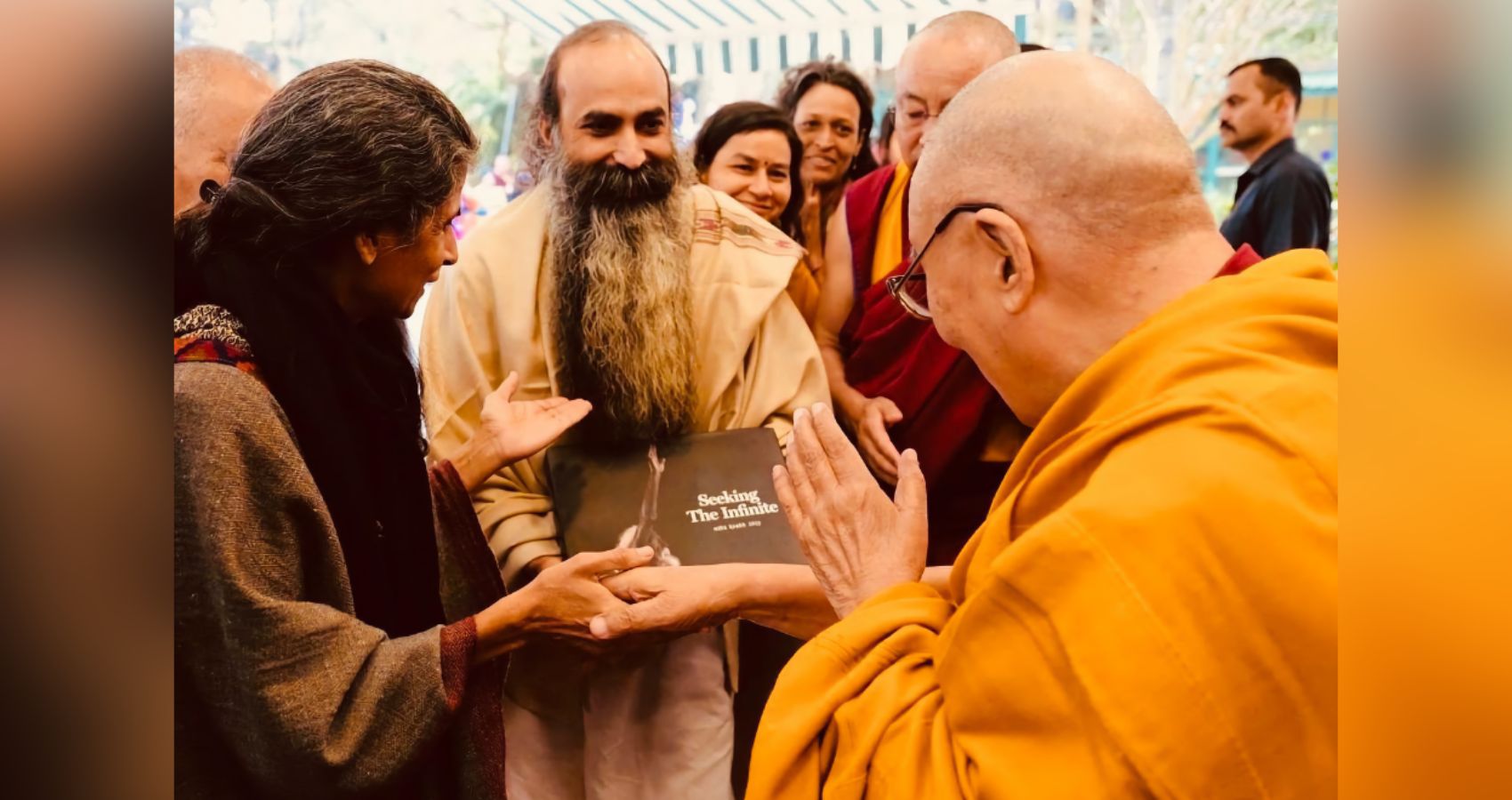
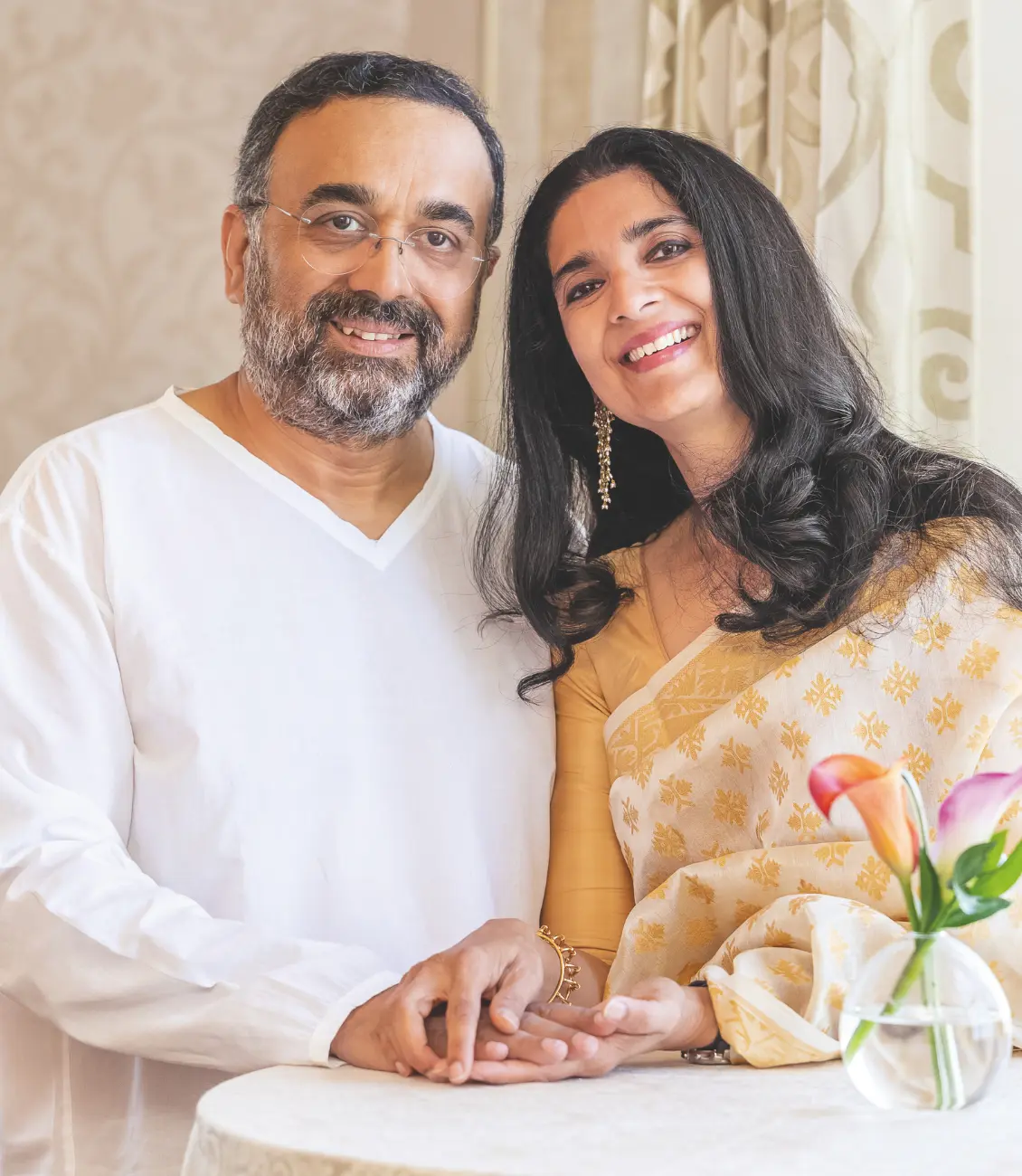 Yakub Mathew, a global financial leader and transformational thinker, will unveil his debut book Seeking the Infinite: Maha Kumbh 2025 during the prestigious IAAC Literary Festival at The International House in New York City on Sunday, November 16, 2025, The landmark literary event will feature a distinguished panel of spiritual and cultural thought leaders, including Sadhguru, Diana Eck, Rabbi Scott Matous, The Very Reverend Winnie Varghese, Imam Feisal Abdul Rauf and Guruji Sri Anish. The event will be moderated by the redoubtable Suhel Seth.
Yakub Mathew, a global financial leader and transformational thinker, will unveil his debut book Seeking the Infinite: Maha Kumbh 2025 during the prestigious IAAC Literary Festival at The International House in New York City on Sunday, November 16, 2025, The landmark literary event will feature a distinguished panel of spiritual and cultural thought leaders, including Sadhguru, Diana Eck, Rabbi Scott Matous, The Very Reverend Winnie Varghese, Imam Feisal Abdul Rauf and Guruji Sri Anish. The event will be moderated by the redoubtable Suhel Seth.
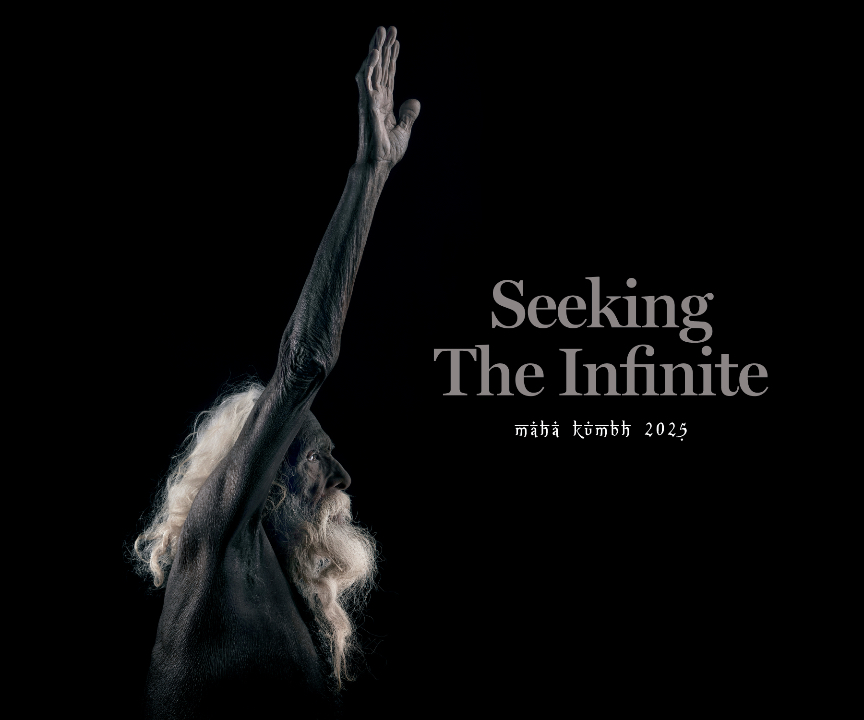 With over three and a half decades of experience across Citibank, HSBC, and Wells Fargo Advisors, Yakub is known for his purpose-driven leadership and cross-cultural vision. He is a graduate in Economics from Madras University, an undergraduate in Economics Honors from St. Stephen’s College, Delhi, and an MBA from the Asian Institute of Management, Manila.
With over three and a half decades of experience across Citibank, HSBC, and Wells Fargo Advisors, Yakub is known for his purpose-driven leadership and cross-cultural vision. He is a graduate in Economics from Madras University, an undergraduate in Economics Honors from St. Stephen’s College, Delhi, and an MBA from the Asian Institute of Management, Manila.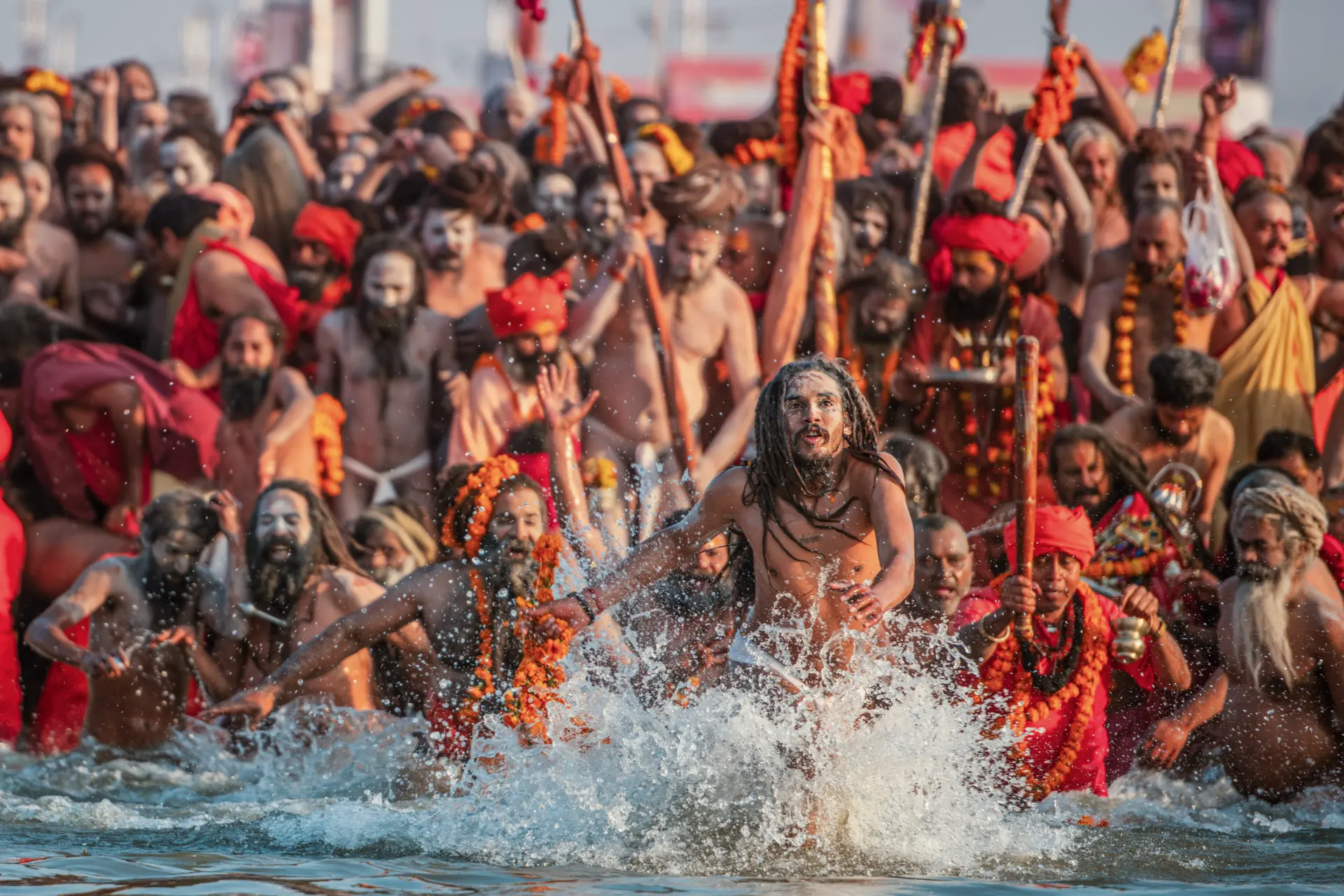
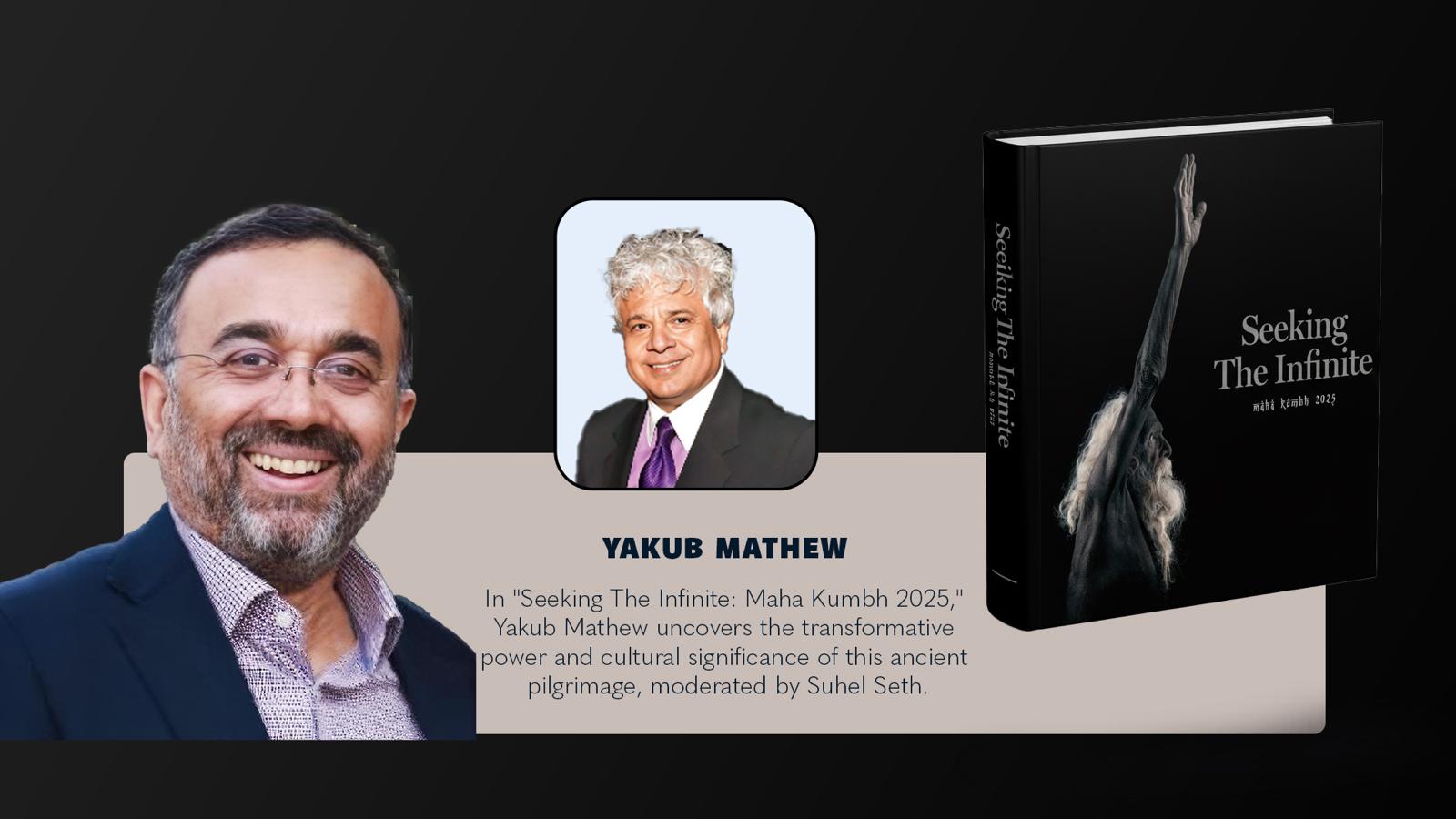
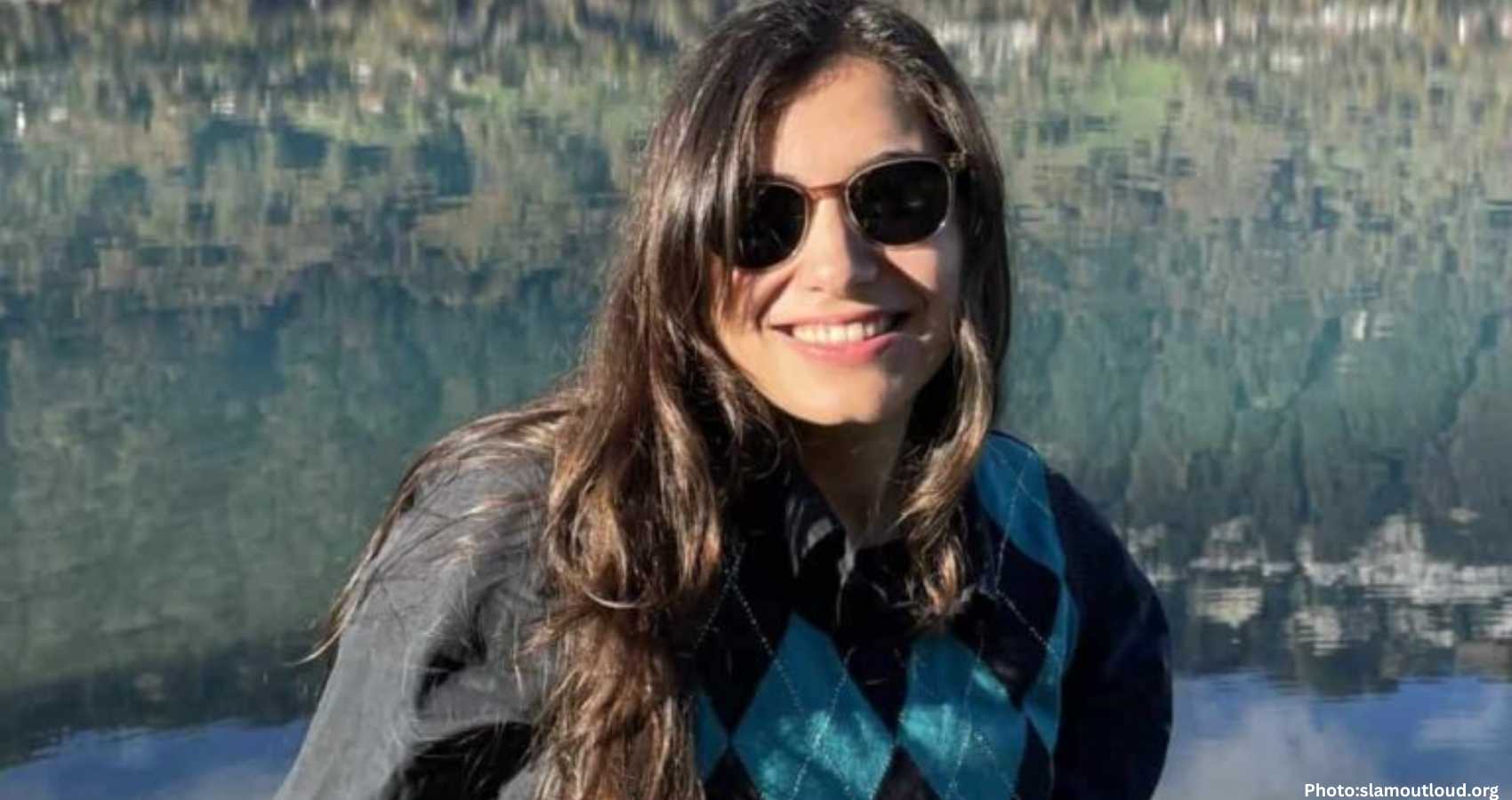
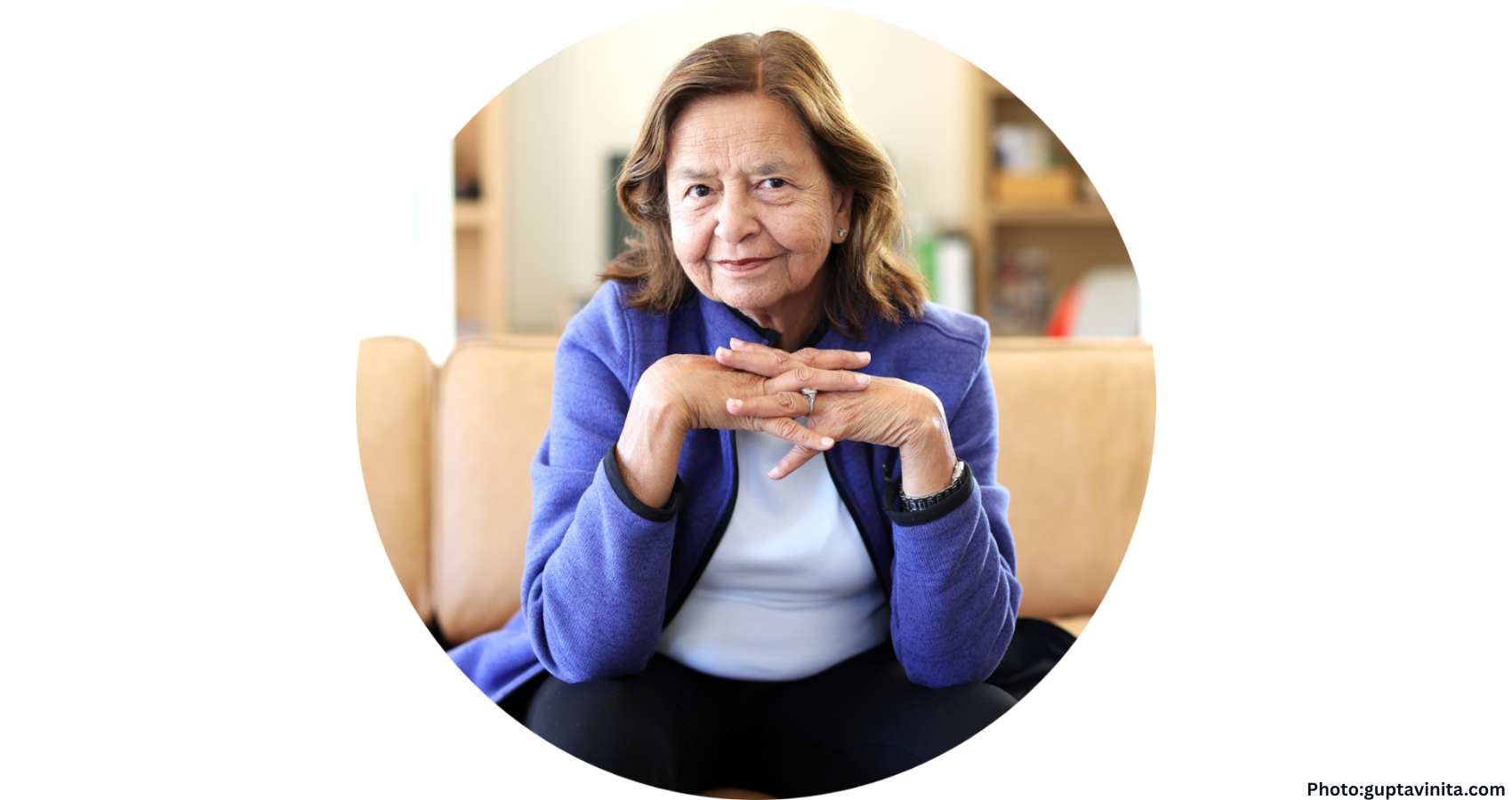

 Ancy James is a former television producer who, after a fulfilling 17-year career, chose to step away from the relentless pursuit of output and certainty in favour of retiring from corporate life at age 37 to a slower and more intentional life. In what she calls her act of quiet rebellion, her toddler’s health scare ensured she followed through on this decision and she traded deadlines and huge pay packets for meaningful quiet personal life. Now over 10 years later, She truly believes that our identity isn’t something we prove, it’s something we shape with the decisions we take daily for our loved ones. She now keeps herself busy as an internationally trained Cake Artist and Chef Trainer with a culinary diploma and runs a FSSAI approved business “Ancy’s Sugar Art Academy, in Bengaluru, India. She discovered marathon running in her journey to reversing her bone health diagnosis at age 42. When she is not customising cakes or running, she is busy reading books across the spectrum or spend hours pouring her heart out in these personal memoirs. Through her weekly personal memoirs, she shares raw, honest reflections on grief, resilience, motherhood, midlife reinvention, and the quiet beauty found in overlooked corners of everyday life. At 48, Ancy writes not to impress, but to connect, believing that vulnerability is the birthplace of both healing and growth. In a fast and AI driven world she believes these memoirs are an honest attempt to stay real and relevant as a female writer who is a 100 percent invested in her journey of “Becoming”.
Ancy James is a former television producer who, after a fulfilling 17-year career, chose to step away from the relentless pursuit of output and certainty in favour of retiring from corporate life at age 37 to a slower and more intentional life. In what she calls her act of quiet rebellion, her toddler’s health scare ensured she followed through on this decision and she traded deadlines and huge pay packets for meaningful quiet personal life. Now over 10 years later, She truly believes that our identity isn’t something we prove, it’s something we shape with the decisions we take daily for our loved ones. She now keeps herself busy as an internationally trained Cake Artist and Chef Trainer with a culinary diploma and runs a FSSAI approved business “Ancy’s Sugar Art Academy, in Bengaluru, India. She discovered marathon running in her journey to reversing her bone health diagnosis at age 42. When she is not customising cakes or running, she is busy reading books across the spectrum or spend hours pouring her heart out in these personal memoirs. Through her weekly personal memoirs, she shares raw, honest reflections on grief, resilience, motherhood, midlife reinvention, and the quiet beauty found in overlooked corners of everyday life. At 48, Ancy writes not to impress, but to connect, believing that vulnerability is the birthplace of both healing and growth. In a fast and AI driven world she believes these memoirs are an honest attempt to stay real and relevant as a female writer who is a 100 percent invested in her journey of “Becoming”.

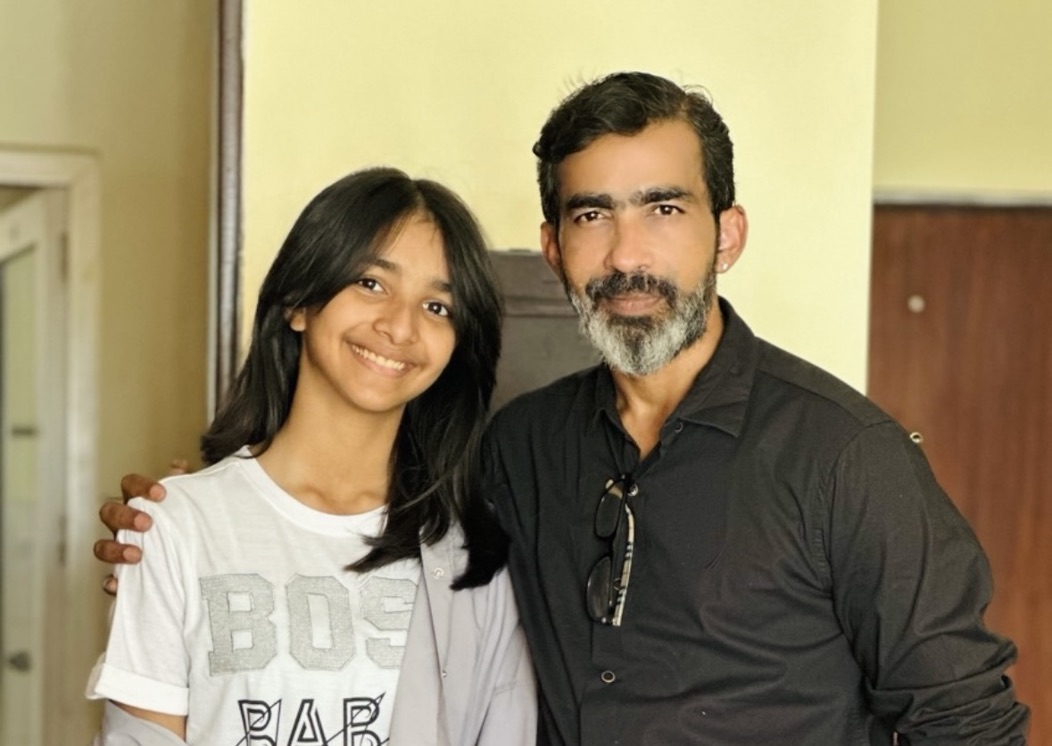
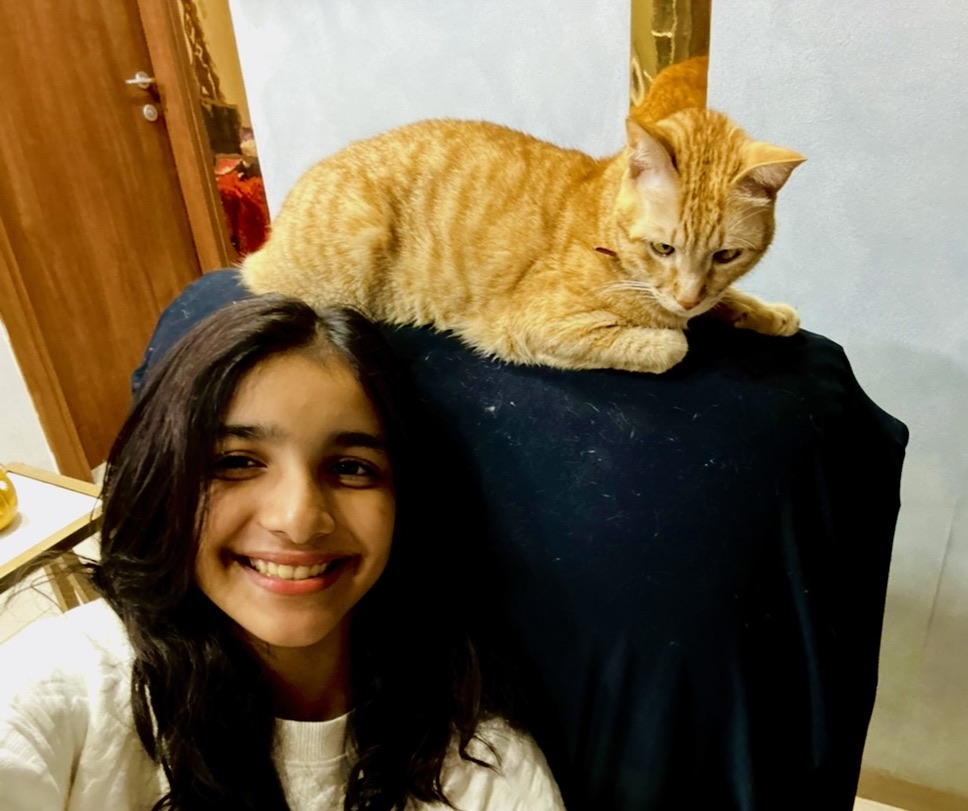


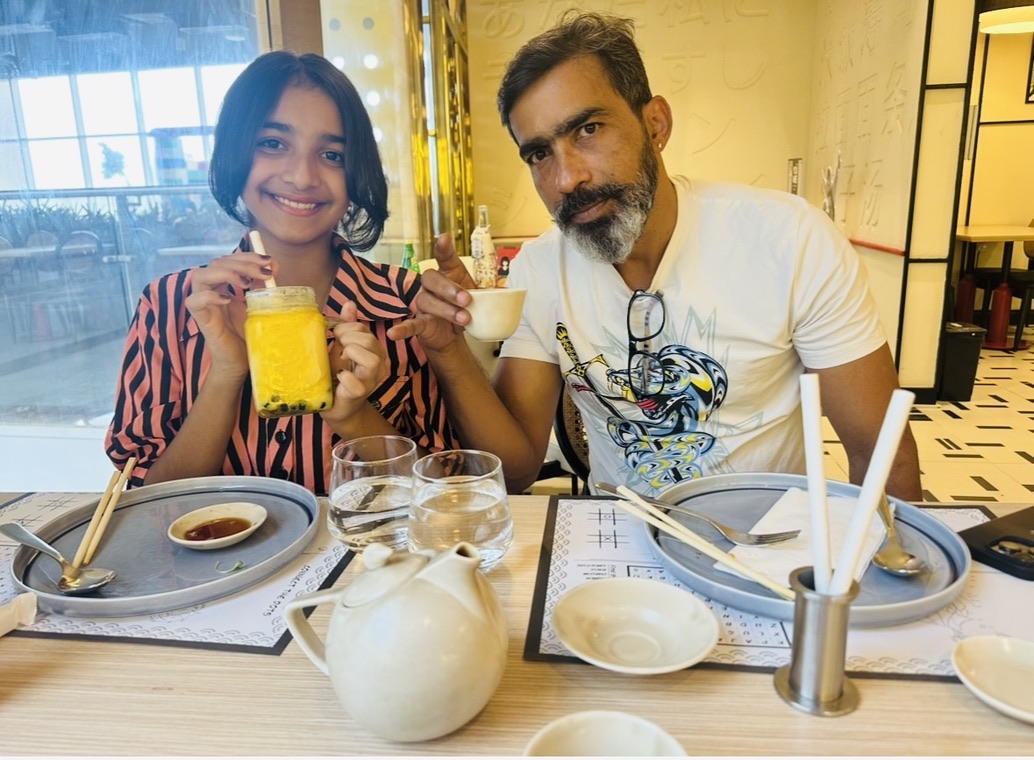
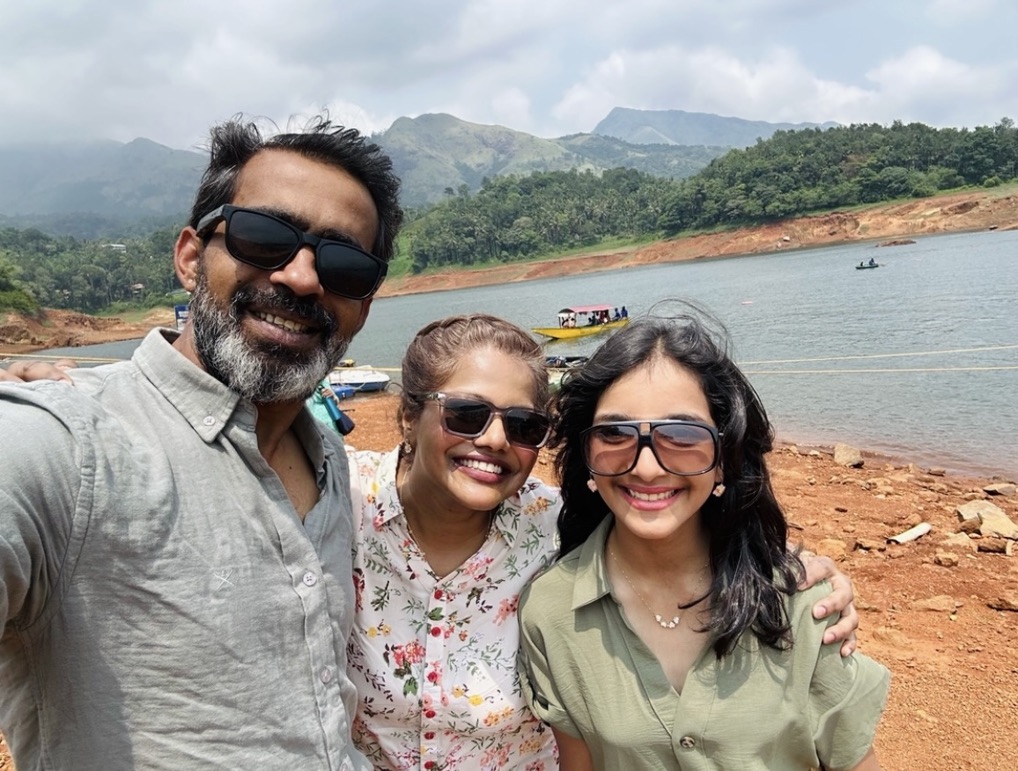



 Ancy James is a former television producer who, after a fulfilling 17-year career, chose to step away from the relentless pursuit of output and certainty in favour of retiring from corporate life at age 37 to a slower and more intentional life. In what she calls her act of quiet rebellion, her toddler’s health scare ensured she followed through on this decision and she traded deadlines and huge pay packets for meaningful quiet personal life. Now over 10 years later, She truly believes that our identity isn’t something we prove, it’s something we shape with the decisions we take daily for our loved ones. She now keeps herself busy as an internationally trained Cake Artist and Chef Trainer with a culinary diploma and runs a FSSAI approved business “Ancy’s Sugar Art Academy, in Bengaluru, India. She discovered marathon running in her journey to reversing her bone health diagnosis at age 42. When she is not customising cakes or running, she is busy reading books across the spectrum or spend hours pouring her heart out in these personal memoirs. Through her weekly personal memoirs, she shares raw, honest reflections on grief, resilience, motherhood, midlife reinvention, and the quiet beauty found in overlooked corners of everyday life. At 48, Ancy writes not to impress, but to connect, believing that vulnerability is the birthplace of both healing and growth. In a fast and AI driven world she believes these memoirs are an honest attempt to stay real and relevant as a female writer who is a 100 percent invested in her journey of “Becoming”.
Ancy James is a former television producer who, after a fulfilling 17-year career, chose to step away from the relentless pursuit of output and certainty in favour of retiring from corporate life at age 37 to a slower and more intentional life. In what she calls her act of quiet rebellion, her toddler’s health scare ensured she followed through on this decision and she traded deadlines and huge pay packets for meaningful quiet personal life. Now over 10 years later, She truly believes that our identity isn’t something we prove, it’s something we shape with the decisions we take daily for our loved ones. She now keeps herself busy as an internationally trained Cake Artist and Chef Trainer with a culinary diploma and runs a FSSAI approved business “Ancy’s Sugar Art Academy, in Bengaluru, India. She discovered marathon running in her journey to reversing her bone health diagnosis at age 42. When she is not customising cakes or running, she is busy reading books across the spectrum or spend hours pouring her heart out in these personal memoirs. Through her weekly personal memoirs, she shares raw, honest reflections on grief, resilience, motherhood, midlife reinvention, and the quiet beauty found in overlooked corners of everyday life. At 48, Ancy writes not to impress, but to connect, believing that vulnerability is the birthplace of both healing and growth. In a fast and AI driven world she believes these memoirs are an honest attempt to stay real and relevant as a female writer who is a 100 percent invested in her journey of “Becoming”.





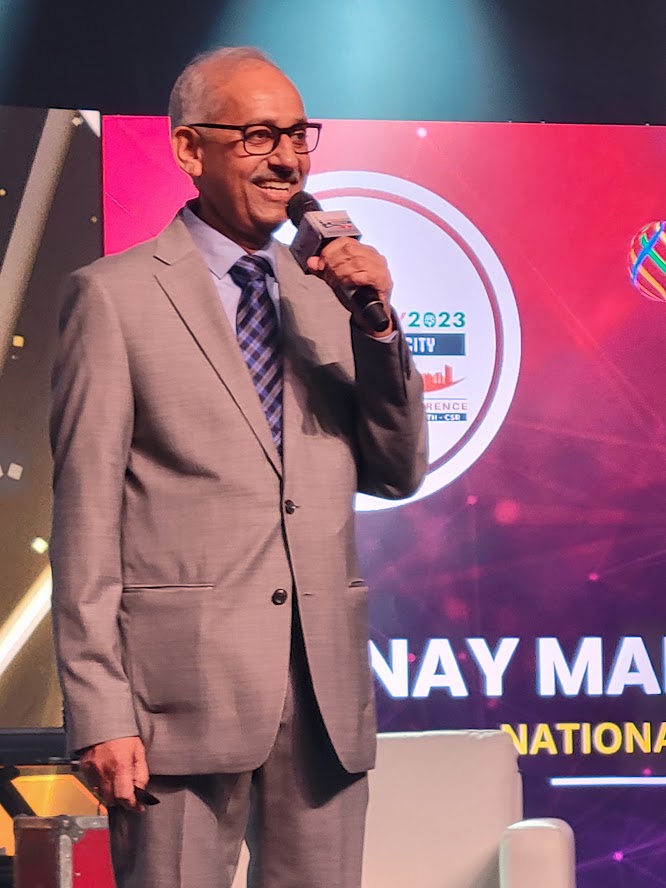 Vinay Mahajan’s professional journey commenced with foundational roles at ICL and DCM Infotech Limited, followed by 38 years as an entrepreneur. After earning an engineering degree from Punjab Engineering College, Chandigarh, and an MBA from the Faculty of Management Studies, Delhi, Mahajan ventured into diverse arenas—IT hardware, manufacturing, software, telecom services, and most recently, data and artificial intelligence.
Vinay Mahajan’s professional journey commenced with foundational roles at ICL and DCM Infotech Limited, followed by 38 years as an entrepreneur. After earning an engineering degree from Punjab Engineering College, Chandigarh, and an MBA from the Faculty of Management Studies, Delhi, Mahajan ventured into diverse arenas—IT hardware, manufacturing, software, telecom services, and most recently, data and artificial intelligence.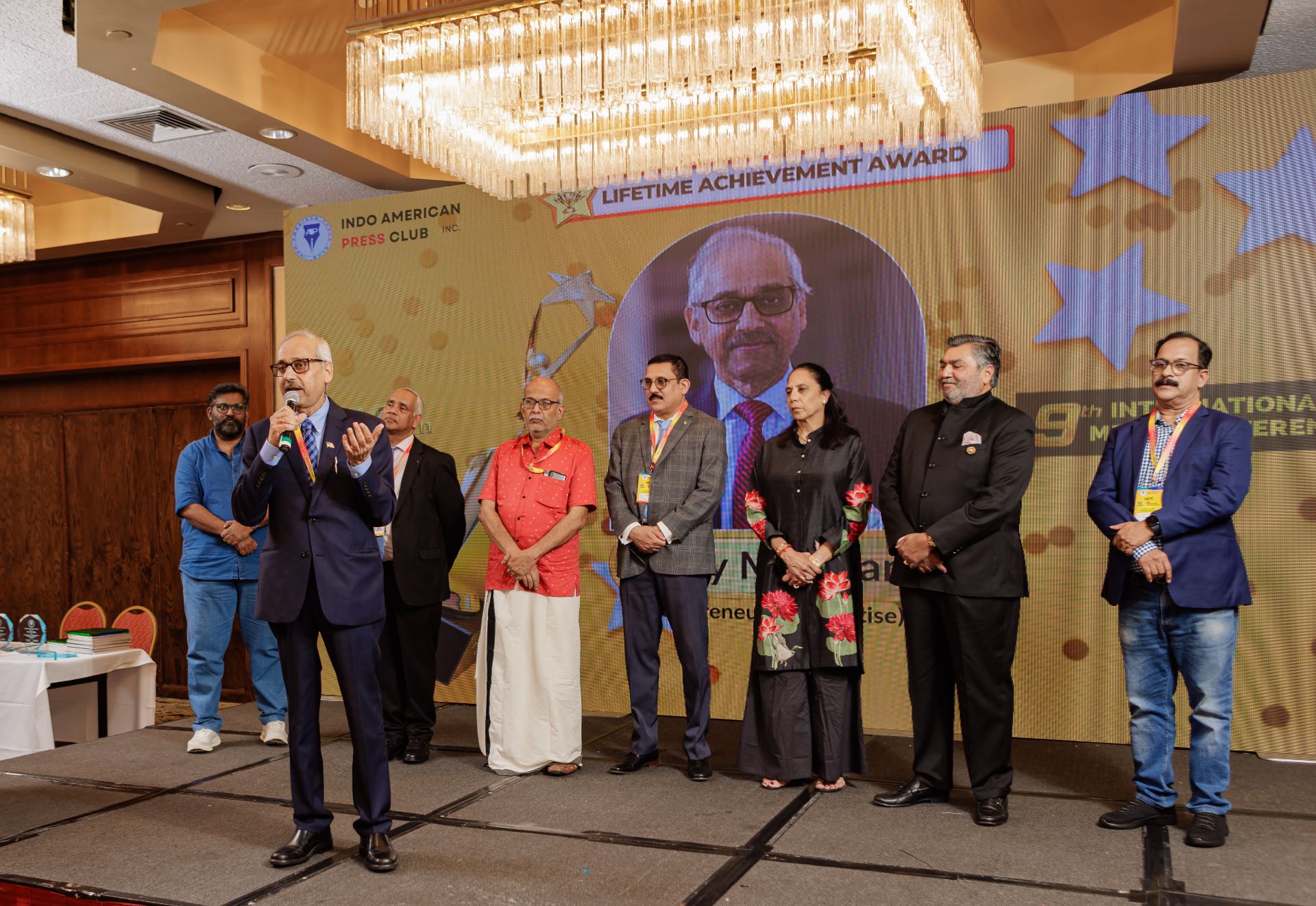 fosters U.S.-India business cooperation and supports entrepreneurship within diaspora communities.
fosters U.S.-India business cooperation and supports entrepreneurship within diaspora communities.

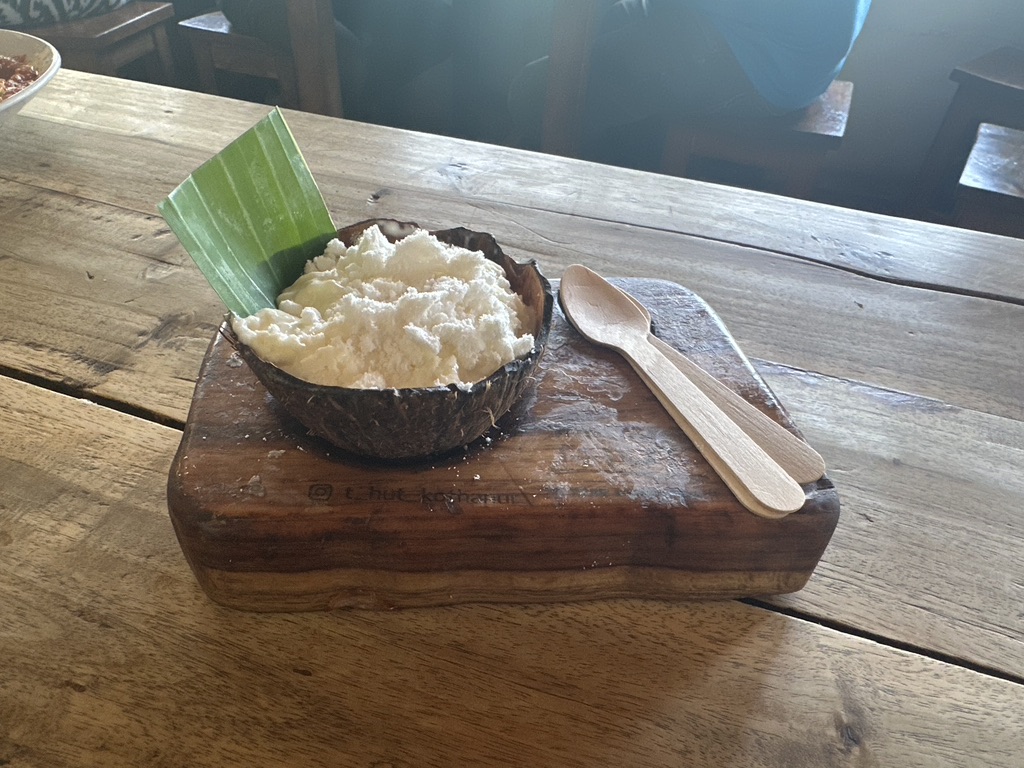

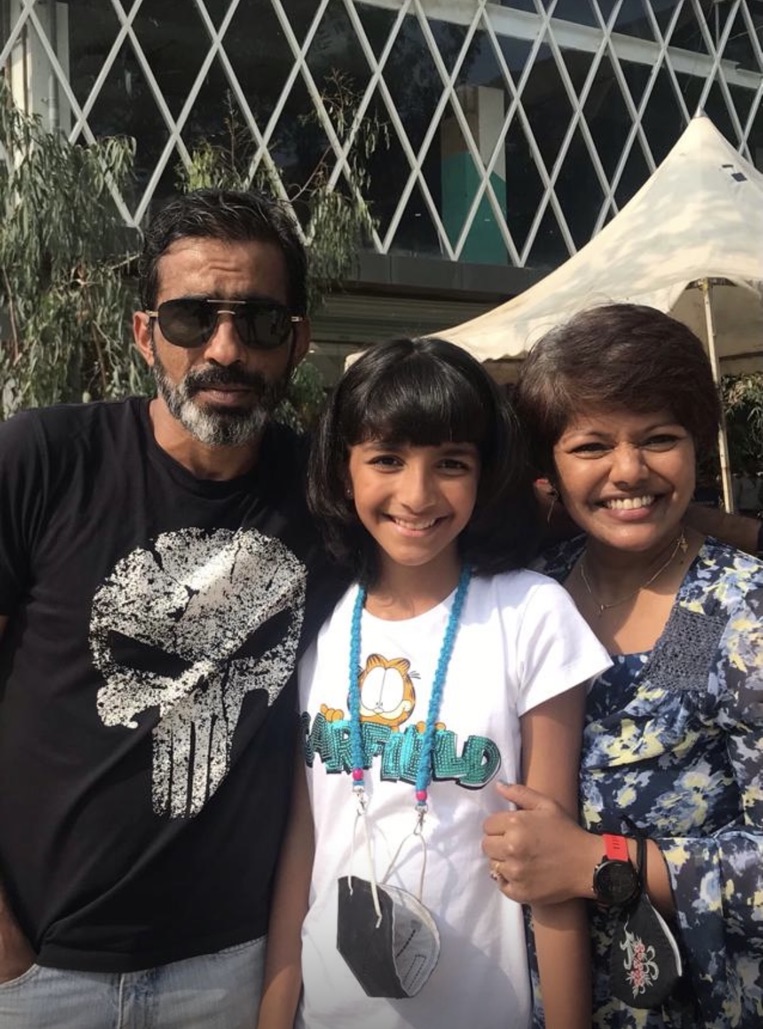

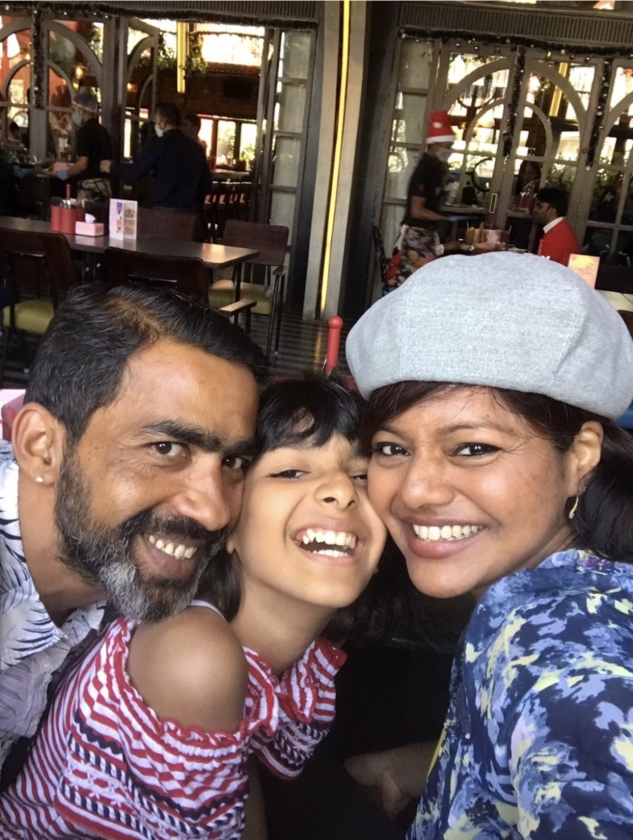
















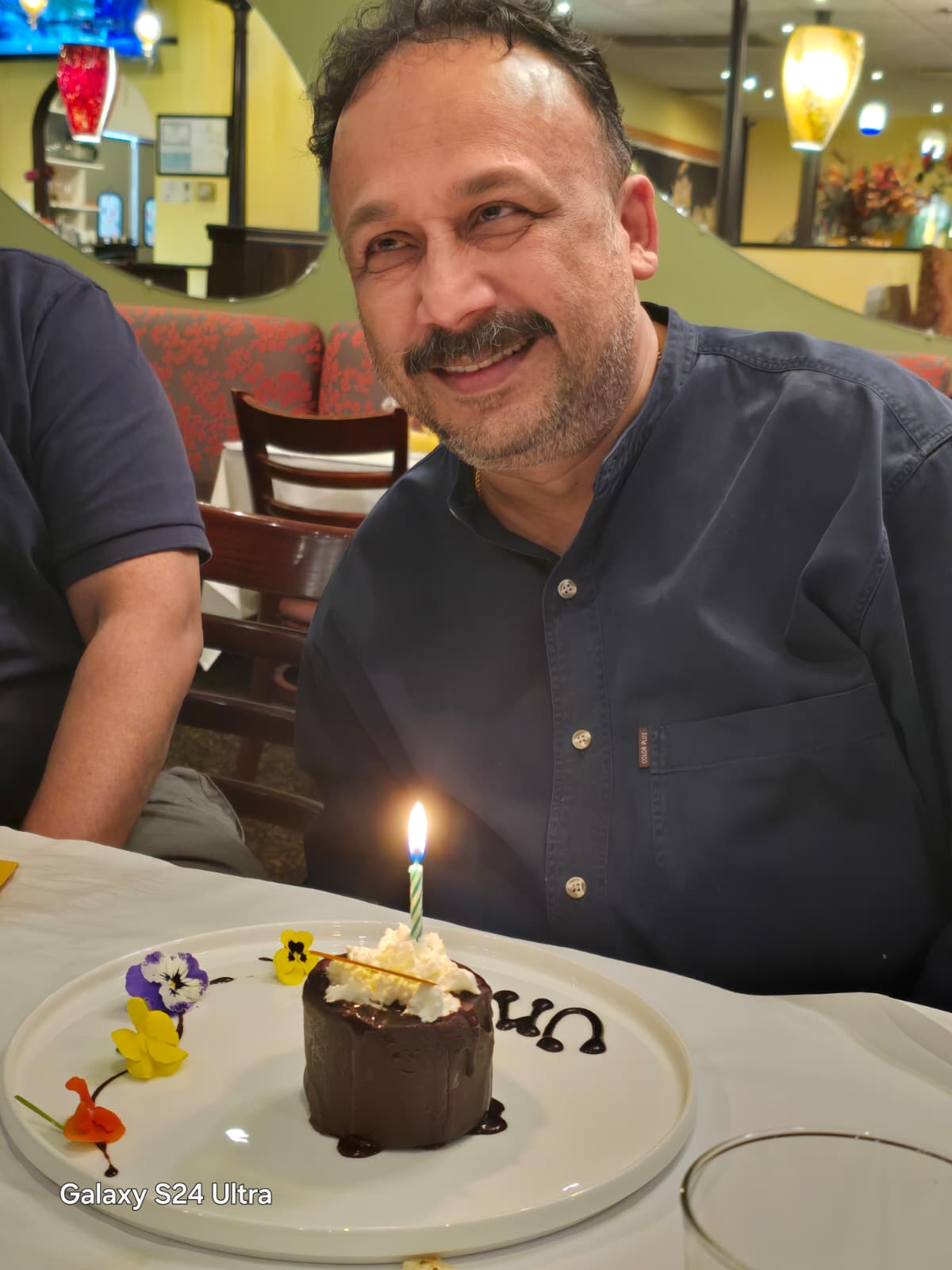 As the Malayali Association of North American Hindus (MANTRA) prepares for its third convention, Shakteyam 2027, to be held in New York from July 1 to 4, Unni Thoyakkatt has been appointed as the new secretary—an acknowledgment of his long-standing cultural commitment and leadership within the Malayali diaspora.
As the Malayali Association of North American Hindus (MANTRA) prepares for its third convention, Shakteyam 2027, to be held in New York from July 1 to 4, Unni Thoyakkatt has been appointed as the new secretary—an acknowledgment of his long-standing cultural commitment and leadership within the Malayali diaspora.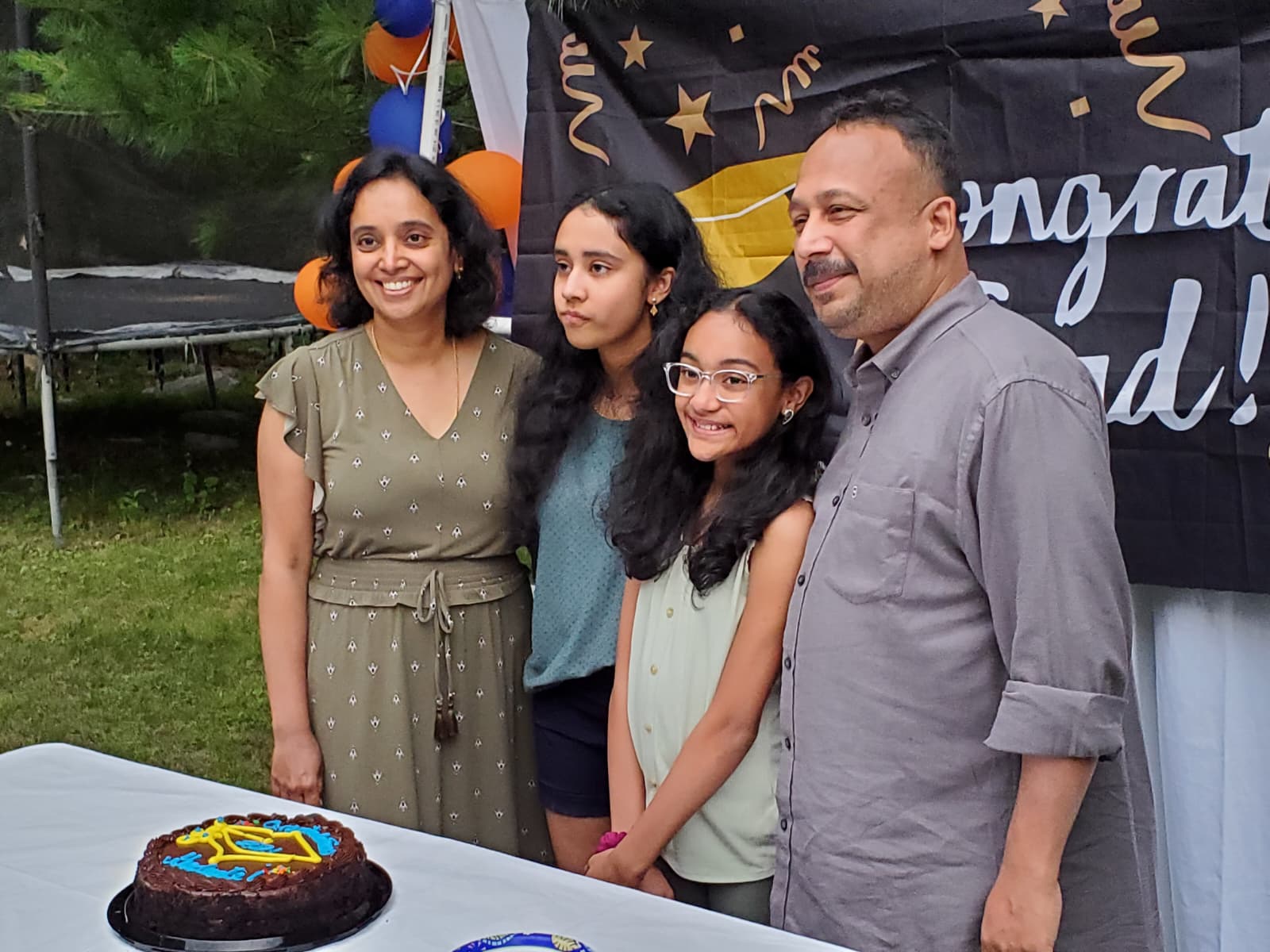
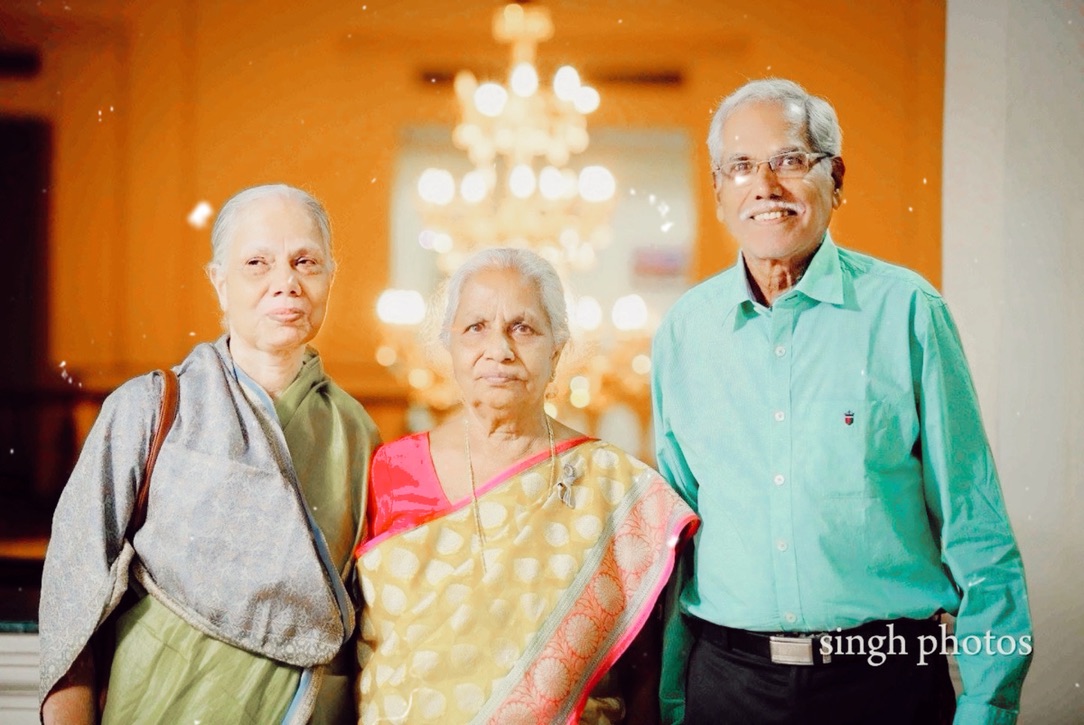
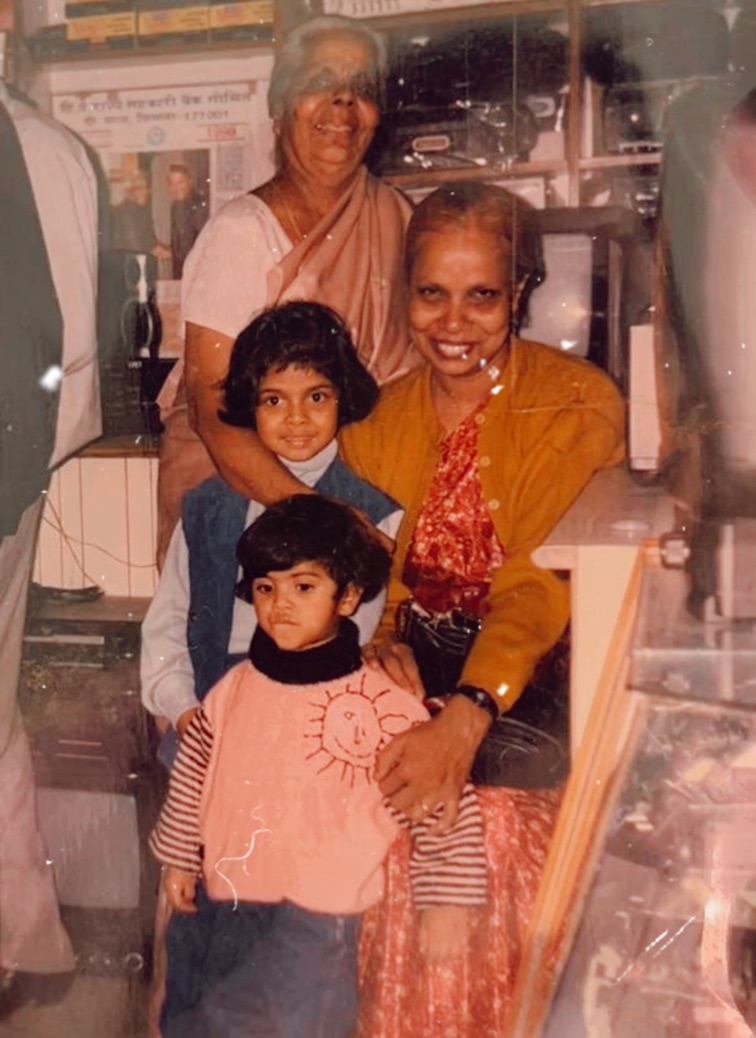
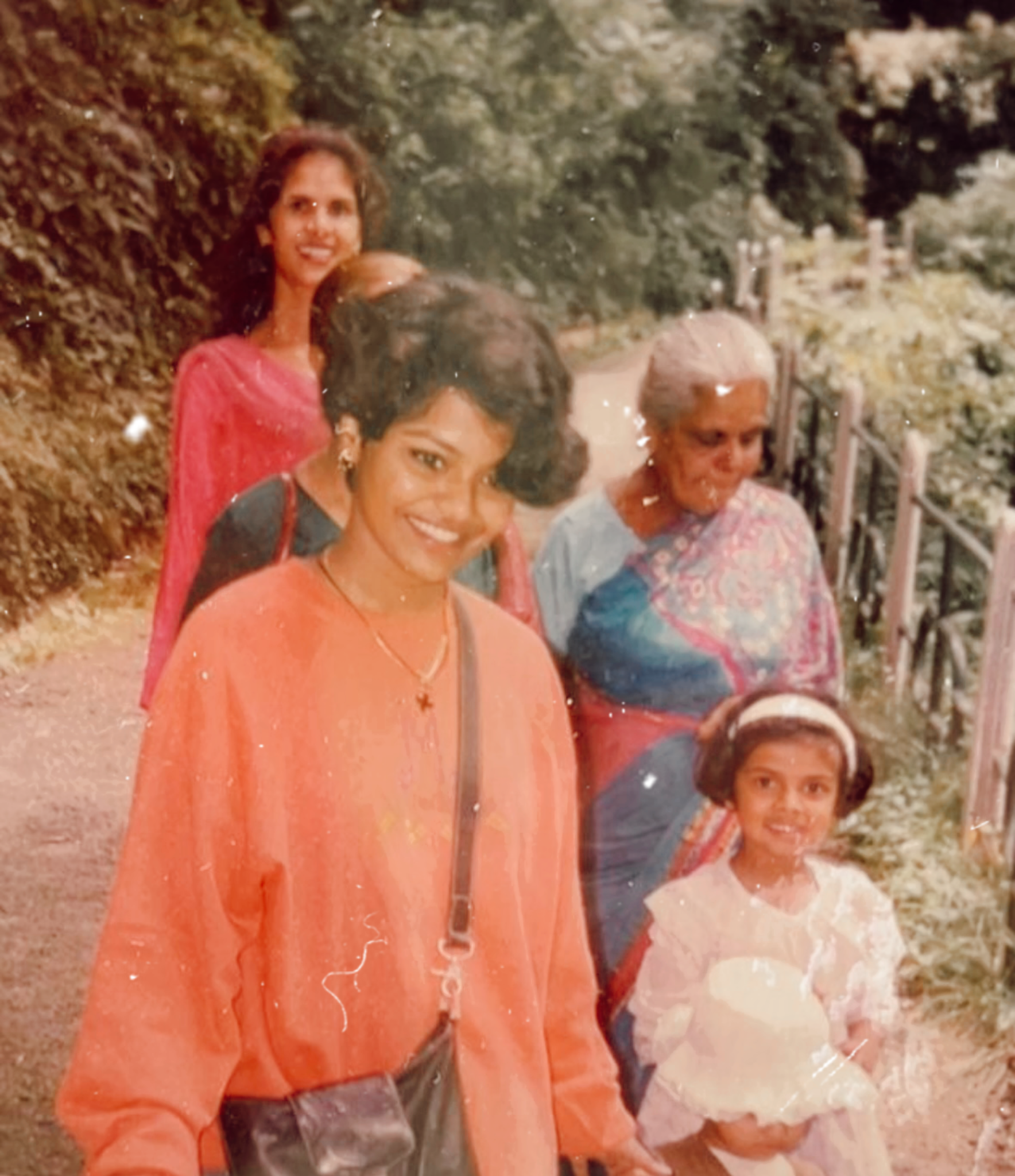
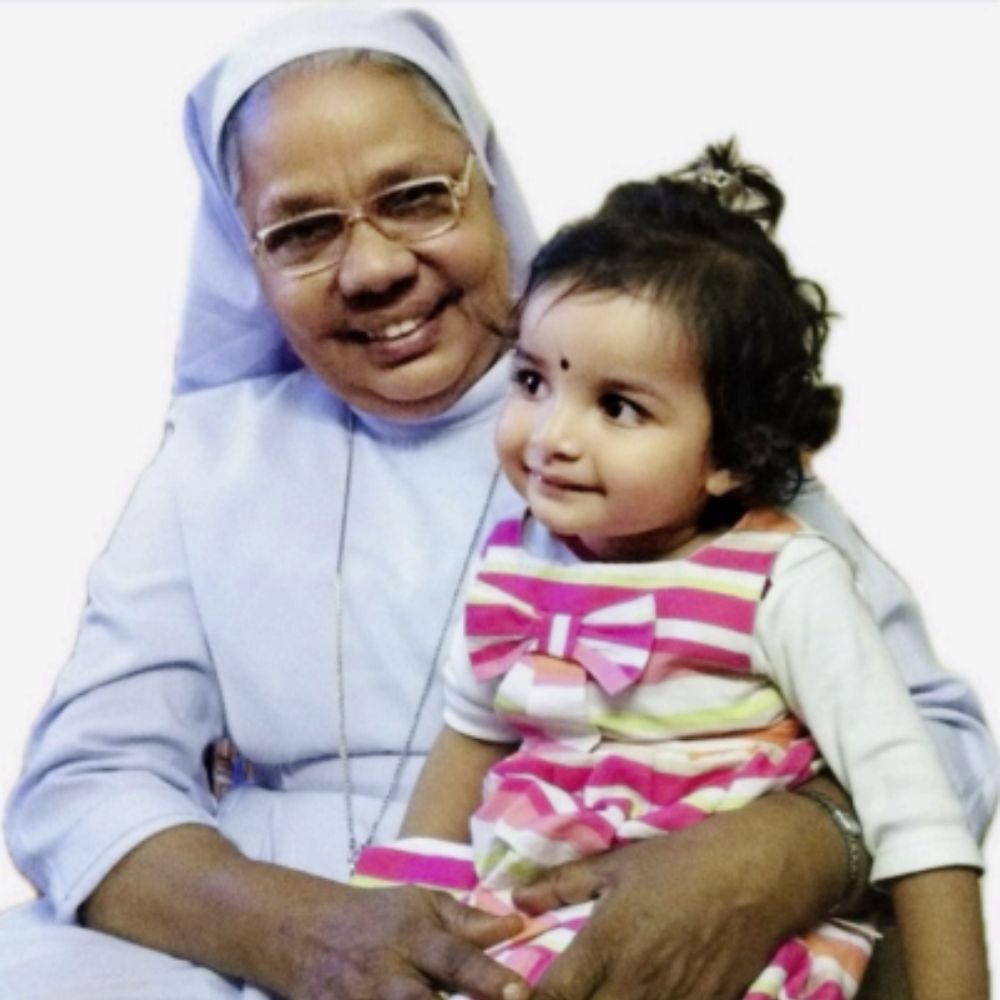
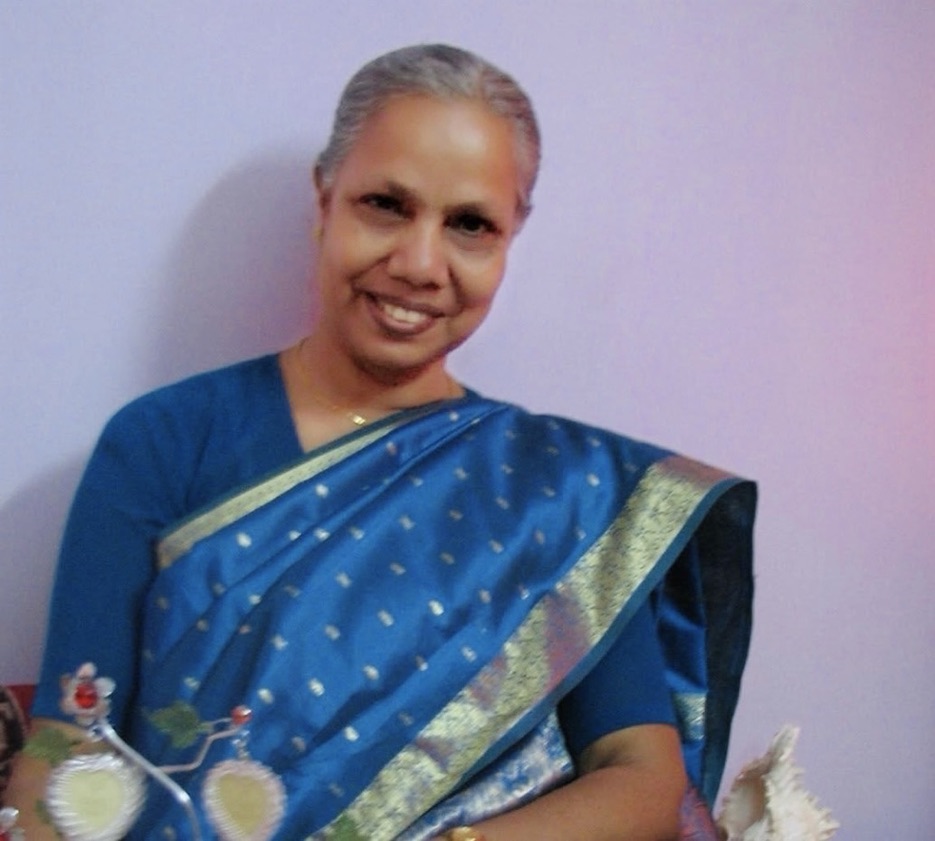
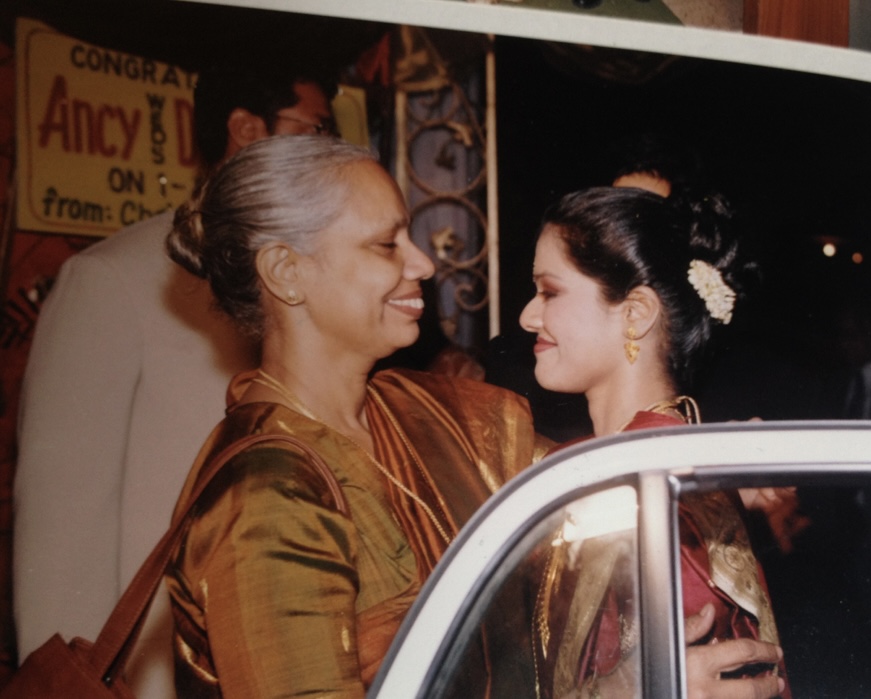
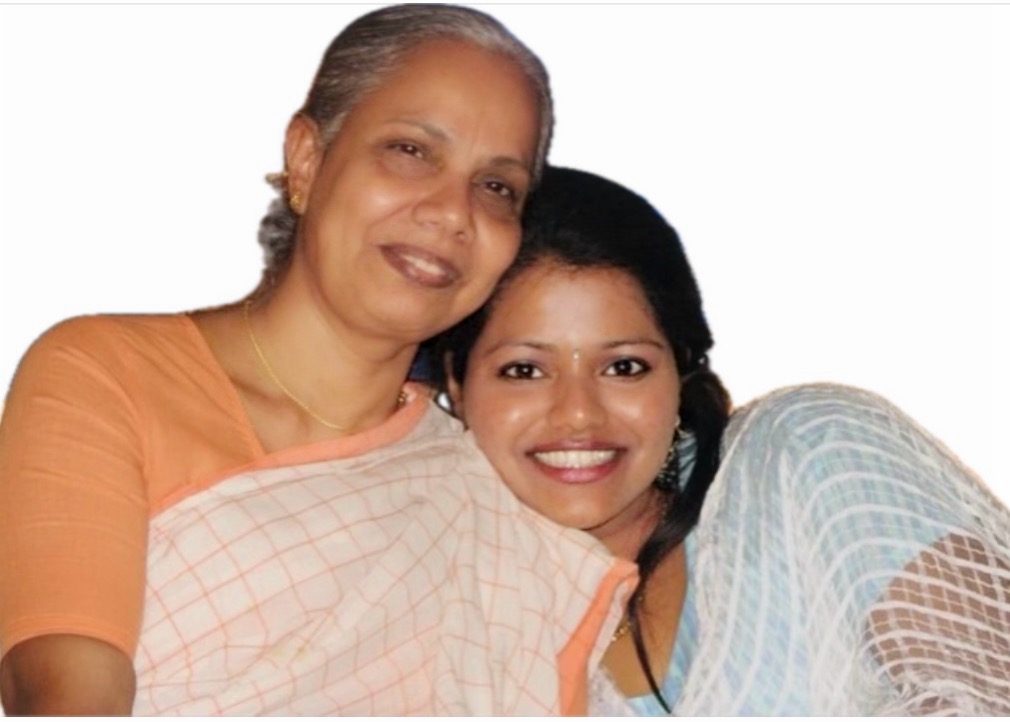
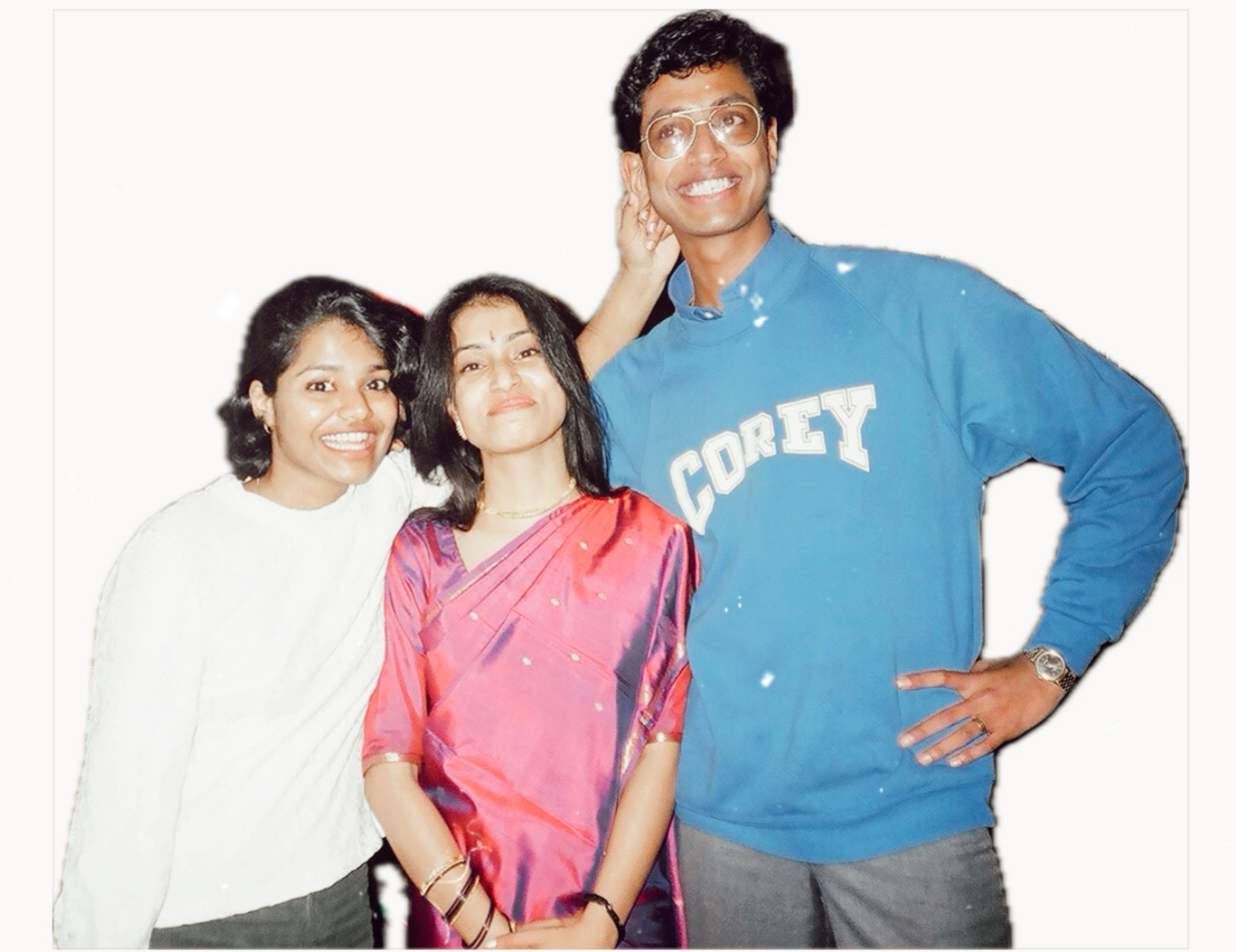
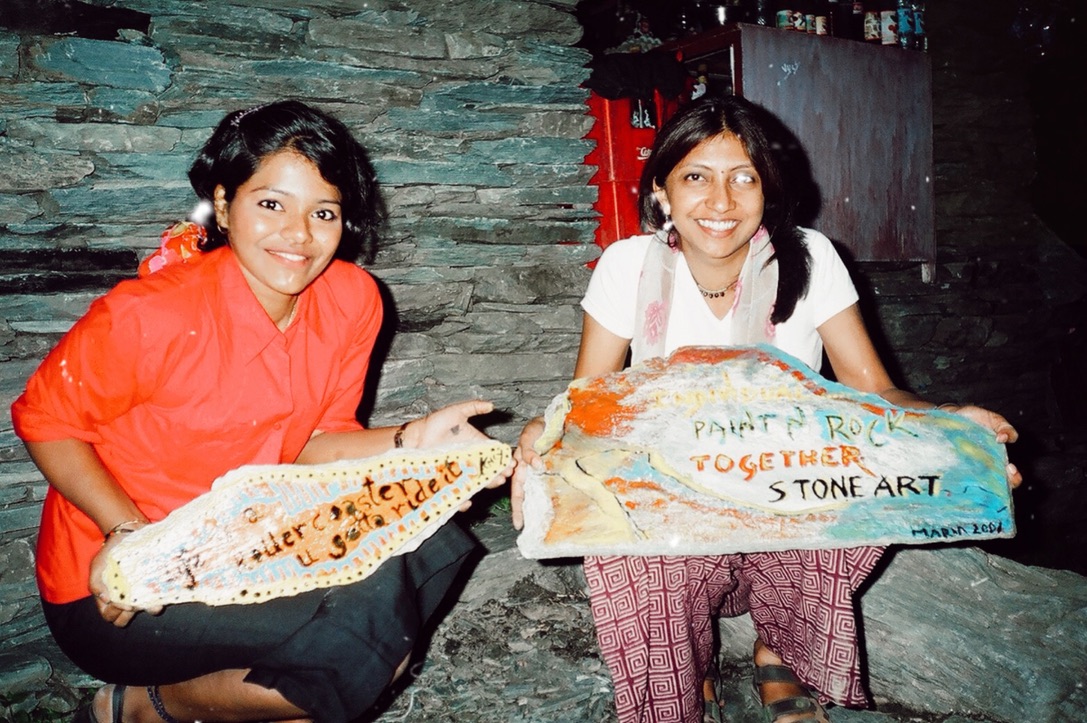
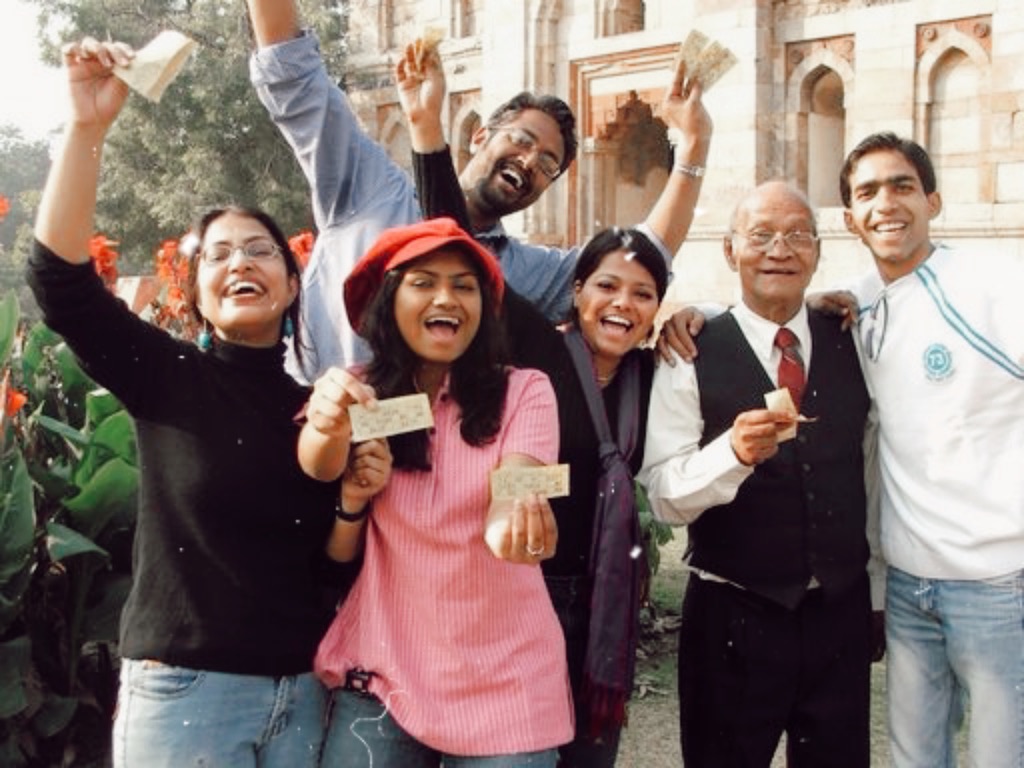
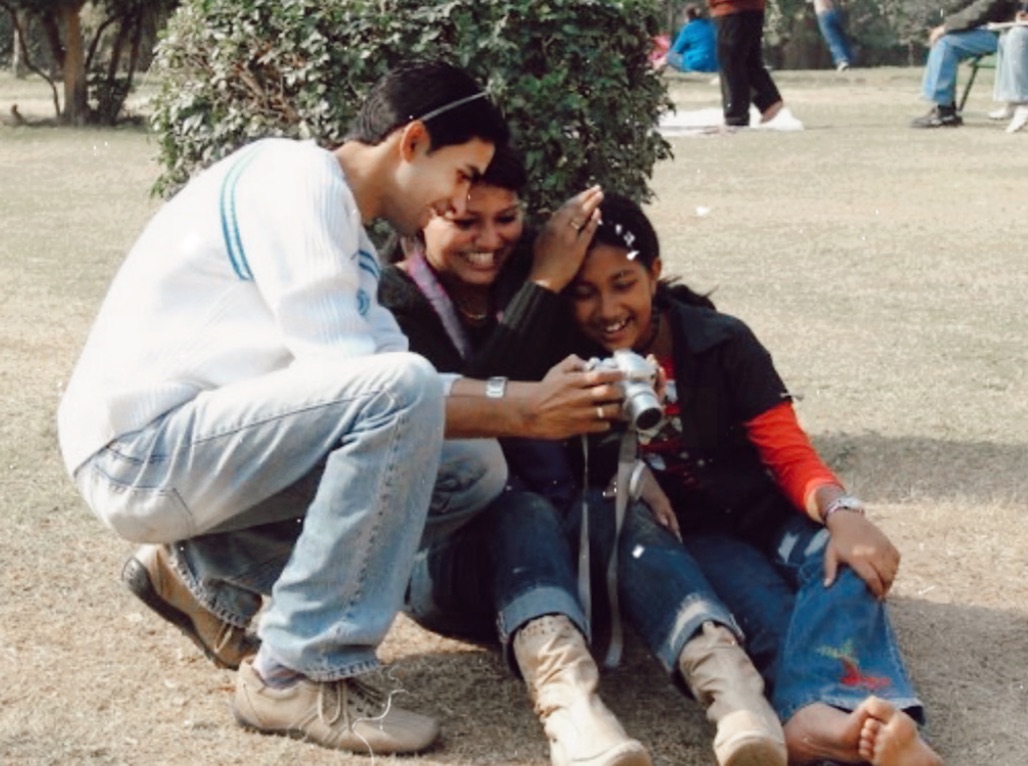
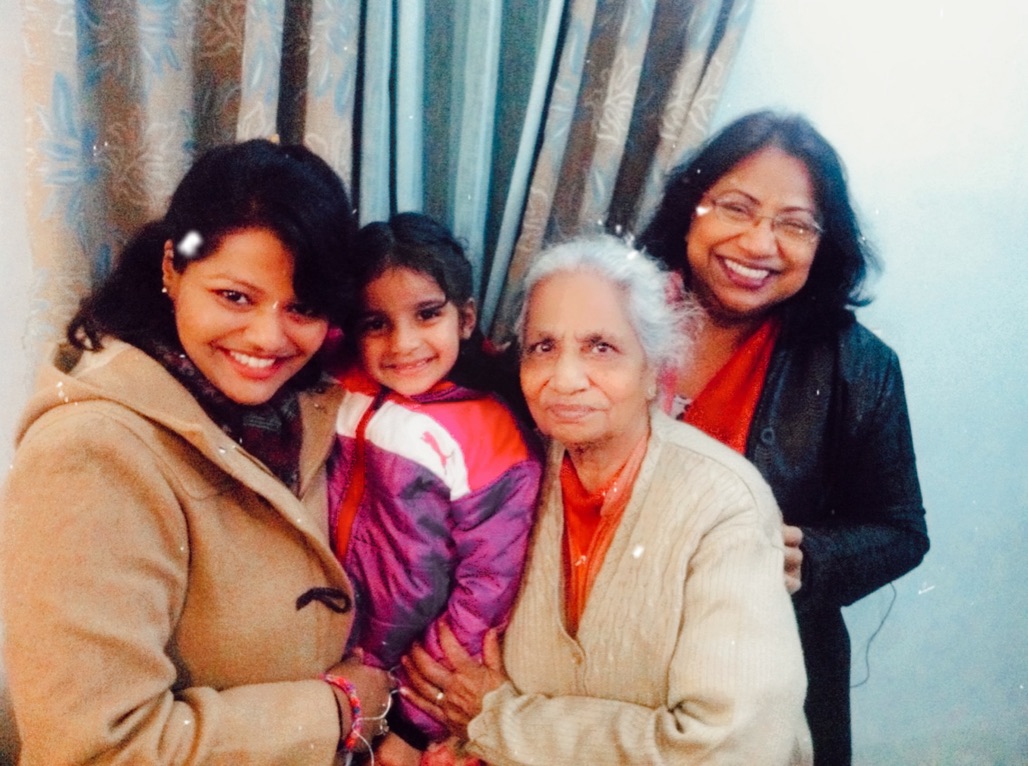













 Her work ethic carried into her college years at Northwestern University, where she juggled studies with a daily paper route. As an adult, she balanced the demands of single motherhood, running a small business, and caring for her ailing parents. These life experiences have given her firsthand insight into the everyday struggles facing working families. “My life was Made in America. This campaign was Made in America. It could not have happened anywhere else,” she declared. “Now, I’m committed to making sure that the same American Dream is alive and well now, and for generations to come.”
Her work ethic carried into her college years at Northwestern University, where she juggled studies with a daily paper route. As an adult, she balanced the demands of single motherhood, running a small business, and caring for her ailing parents. These life experiences have given her firsthand insight into the everyday struggles facing working families. “My life was Made in America. This campaign was Made in America. It could not have happened anywhere else,” she declared. “Now, I’m committed to making sure that the same American Dream is alive and well now, and for generations to come.”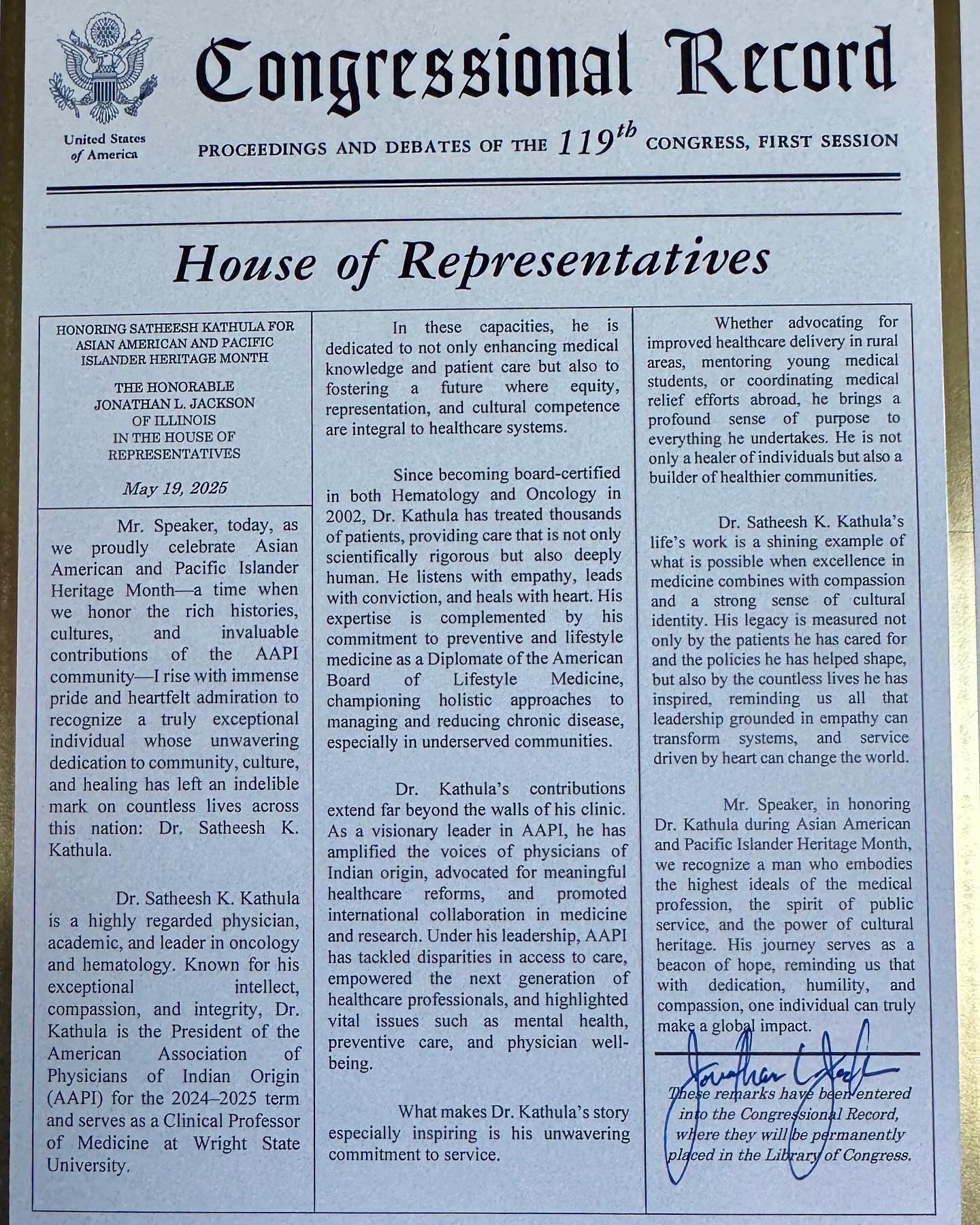 As a Diplomat of the American Board of Lifestyle Medicine, championing holistic approaches to managing and reducing Chronic Disease, especially in underserved communities, “Dr Kathula’s contributions extend far beyond the walls of his clinic. As a visionary leader in AAPI, he has amplified the voices of Physicians of Indian religion, advocated for meaningful healthcare reforms, and promoted international collaboration in medicine and research under his leadership,” Rep. Jackson added.
As a Diplomat of the American Board of Lifestyle Medicine, championing holistic approaches to managing and reducing Chronic Disease, especially in underserved communities, “Dr Kathula’s contributions extend far beyond the walls of his clinic. As a visionary leader in AAPI, he has amplified the voices of Physicians of Indian religion, advocated for meaningful healthcare reforms, and promoted international collaboration in medicine and research under his leadership,” Rep. Jackson added. His facility, the David S. Zocchi Brain Tumor Center, is renowned for its innovative approaches in treating brain tumors and improving patient outcomes. Dr. Raval’s dedication to providing compassionate care has earned him accolades, including the GBM Heroes Award presented at the 21st Annual Scientific Meeting of the Society for Neuro-Oncology organized by CURE® magazine.
His facility, the David S. Zocchi Brain Tumor Center, is renowned for its innovative approaches in treating brain tumors and improving patient outcomes. Dr. Raval’s dedication to providing compassionate care has earned him accolades, including the GBM Heroes Award presented at the 21st Annual Scientific Meeting of the Society for Neuro-Oncology organized by CURE® magazine.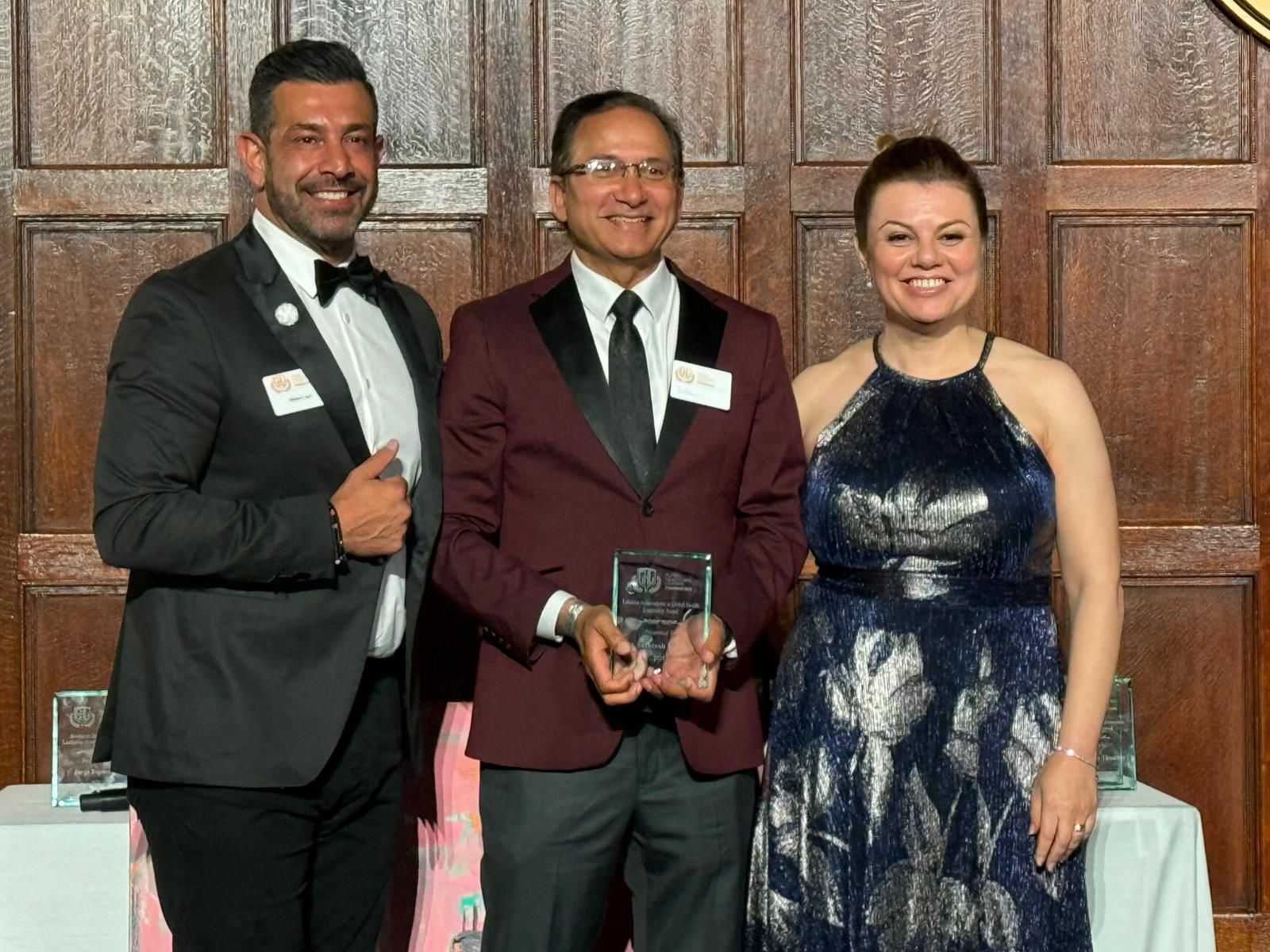 Dr. Satheesh Kathula is a renowned hematologist and oncologist based in Dayton, Ohio, currently serving as the President of the American Association of Physicians of Indian Origin (AAPI). Dr. Kathula, in his response after receiving the award, said, “I am truly humbled to receive this Lifetime Achievement in Global Healthcare Leadership alongside several other remarkable individuals. This inspires not only me, but the people who are serving the community and society at large.”
Dr. Satheesh Kathula is a renowned hematologist and oncologist based in Dayton, Ohio, currently serving as the President of the American Association of Physicians of Indian Origin (AAPI). Dr. Kathula, in his response after receiving the award, said, “I am truly humbled to receive this Lifetime Achievement in Global Healthcare Leadership alongside several other remarkable individuals. This inspires not only me, but the people who are serving the community and society at large.”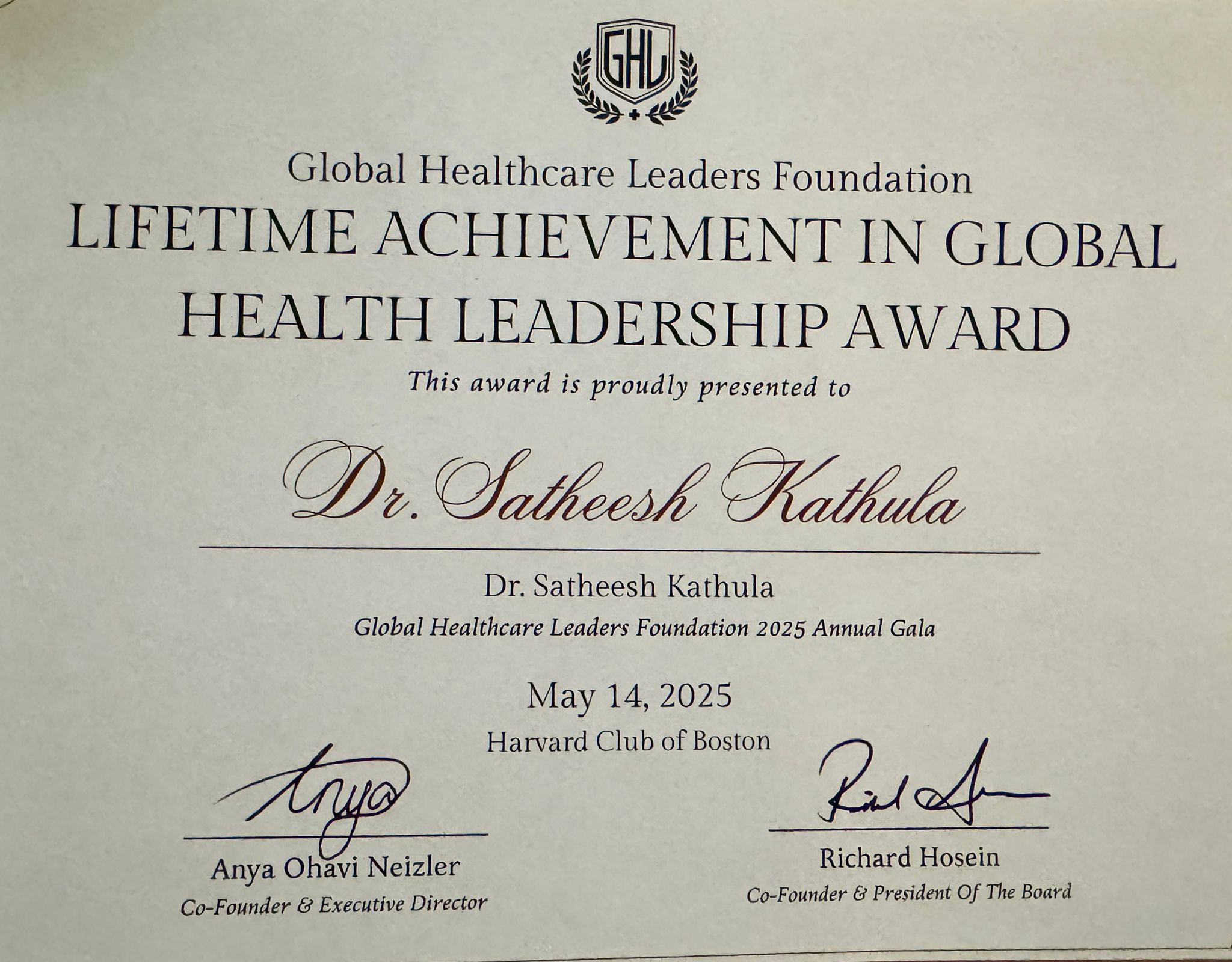 Under his leadership, AAPI has launched a program called “Million Miles of Gratitude” to honor veterans by promoting physical activity. Participants can log their walking or running miles, with each mile serving as a tribute to the veterans. The goal is to collectively reach a million miles in the coming year. In May this year, he led a highly successful AAPI Legislative Day on Capitol Hill, where AAPI sought to collectively shape the best health care for the people of US, with the physician at the helm, caring for the medically underserved.
Under his leadership, AAPI has launched a program called “Million Miles of Gratitude” to honor veterans by promoting physical activity. Participants can log their walking or running miles, with each mile serving as a tribute to the veterans. The goal is to collectively reach a million miles in the coming year. In May this year, he led a highly successful AAPI Legislative Day on Capitol Hill, where AAPI sought to collectively shape the best health care for the people of US, with the physician at the helm, caring for the medically underserved.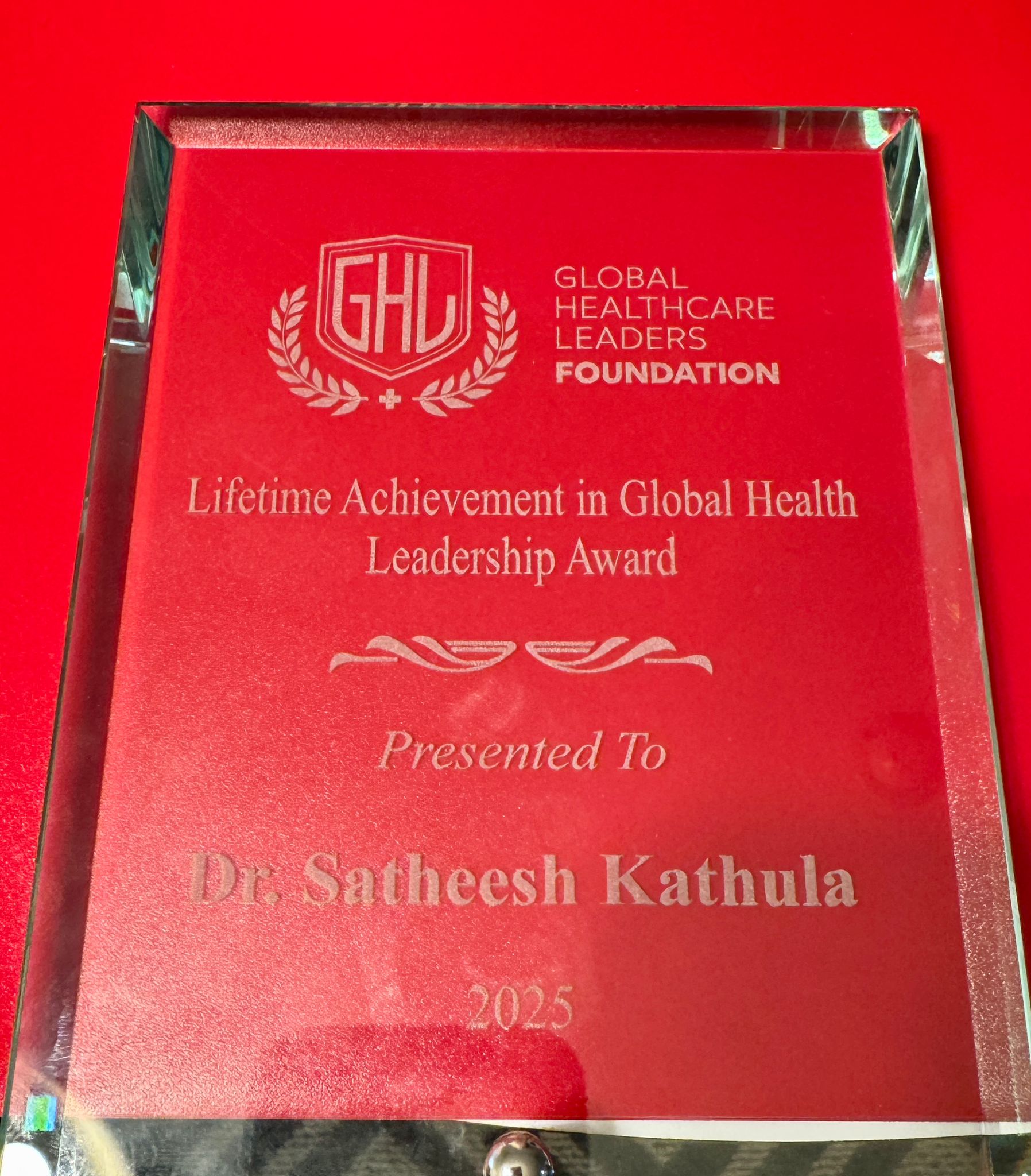 Dr Kathula’s love for his motherland has manifested in him setting up humanitarian and medical projects in India. The most important of them is establishing a state-of-the-art pharmacy college in Warangal in Telangana, where he grew up. Named the Pathfinder Institute of Pharmacy and Educational Research (PIPER), the non-profit with Dr Kathula as the Chairman provides quality education and has already graduated over 1,000 students who are now working in different parts of India and abroad. He conducted several medical camps close to his native place and donated a defibrillator, water purification plant, and library to his native place.
Dr Kathula’s love for his motherland has manifested in him setting up humanitarian and medical projects in India. The most important of them is establishing a state-of-the-art pharmacy college in Warangal in Telangana, where he grew up. Named the Pathfinder Institute of Pharmacy and Educational Research (PIPER), the non-profit with Dr Kathula as the Chairman provides quality education and has already graduated over 1,000 students who are now working in different parts of India and abroad. He conducted several medical camps close to his native place and donated a defibrillator, water purification plant, and library to his native place.

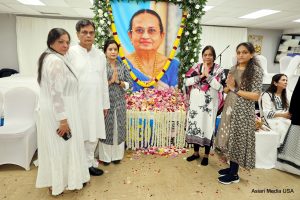




 Dr. Sampat Shivangi is a distinguished Indian American physician, philanthropist, and community leader with a profound impact on healthcare, education, and cultural preservation across India and the United States.
Dr. Sampat Shivangi is a distinguished Indian American physician, philanthropist, and community leader with a profound impact on healthcare, education, and cultural preservation across India and the United States. and spiritual hub for the Hindu community and beyond. Recognized for his exemplary service, a street in Mississippi bears his name, a testament to his contributions to healthcare and community welfare.
and spiritual hub for the Hindu community and beyond. Recognized for his exemplary service, a street in Mississippi bears his name, a testament to his contributions to healthcare and community welfare. It took him lots of reflection, planning, and working with multiple groups before this noble project conceived in his heart several years ago, has now come to fulfillment. “Believe me, I went to my hometown in Karnataka to set up a Cancer Hospital. I had even formed a committee and raised funds. Made several trips to India and struggled to do something good, but returned home empty-handed.”
It took him lots of reflection, planning, and working with multiple groups before this noble project conceived in his heart several years ago, has now come to fulfillment. “Believe me, I went to my hometown in Karnataka to set up a Cancer Hospital. I had even formed a committee and raised funds. Made several trips to India and struggled to do something good, but returned home empty-handed.” and tireless efforts that every individual deserves an opportunity to thrive, and is a beacon of hope, fostering resilience and building a more inclusive and harmonious world for all.
and tireless efforts that every individual deserves an opportunity to thrive, and is a beacon of hope, fostering resilience and building a more inclusive and harmonious world for all. At the heart of societal transformation, the Dr. Sampat Shivangi Foundation stands as a testament to unwavering commitment and compassion. The foundation is built upon the pillars of education, healthcare, mental well-being, tribal support, women’s empowerment, and sports development. With a profound understanding of the multifaceted needs of underprivileged communities, we have designed a range of initiatives that address these vital aspects of human well-being.
At the heart of societal transformation, the Dr. Sampat Shivangi Foundation stands as a testament to unwavering commitment and compassion. The foundation is built upon the pillars of education, healthcare, mental well-being, tribal support, women’s empowerment, and sports development. With a profound understanding of the multifaceted needs of underprivileged communities, we have designed a range of initiatives that address these vital aspects of human well-being. Civil Nuclear Agreement, collaborating with President George W. Bush to strengthen ties between the two nations. His commitment to India is further reflected in his coordination efforts with the White House to lift sanctions against India during President Bill Clinton’s administration.
Civil Nuclear Agreement, collaborating with President George W. Bush to strengthen ties between the two nations. His commitment to India is further reflected in his coordination efforts with the White House to lift sanctions against India during President Bill Clinton’s administration. Among the many initiatives Dr. Raju has undertaken, the upcoming Fundraiser in New Delhi is a pan-India Roll Out Program with the objective of raising $500,000, which will be matched by the Eye Foundation of America. The funds raised will be utilized towards establishing 100 ROP screening centers across India; Training 500 healthcare professionals in ROP screening and treatment; and, Treating 10,000 ROP-affected babies annually across India.
Among the many initiatives Dr. Raju has undertaken, the upcoming Fundraiser in New Delhi is a pan-India Roll Out Program with the objective of raising $500,000, which will be matched by the Eye Foundation of America. The funds raised will be utilized towards establishing 100 ROP screening centers across India; Training 500 healthcare professionals in ROP screening and treatment; and, Treating 10,000 ROP-affected babies annually across India.  For the past four decades, Dr. Raju and the EFA have been actively and tirelessly on a crusade to eliminate avoidable blindness in areas plagued by poverty and poor access to medical care. The EFA’s mission is to eliminate
For the past four decades, Dr. Raju and the EFA have been actively and tirelessly on a crusade to eliminate avoidable blindness in areas plagued by poverty and poor access to medical care. The EFA’s mission is to eliminate  The Goutami Institute has a wing dedicated exclusively for children, and the EFA has future plans to build a service and research eye hospital in India where no child will be denied treatment and children from around the world can come to receive services. Dr. Raju and the EFA are also committed to finding new cures for age-old eye disease in children.
The Goutami Institute has a wing dedicated exclusively for children, and the EFA has future plans to build a service and research eye hospital in India where no child will be denied treatment and children from around the world can come to receive services. Dr. Raju and the EFA are also committed to finding new cures for age-old eye disease in children. 


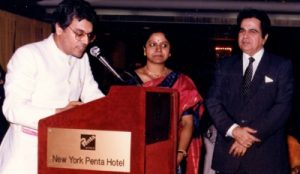

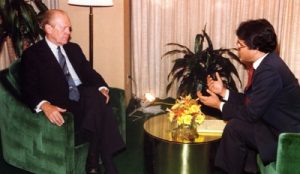




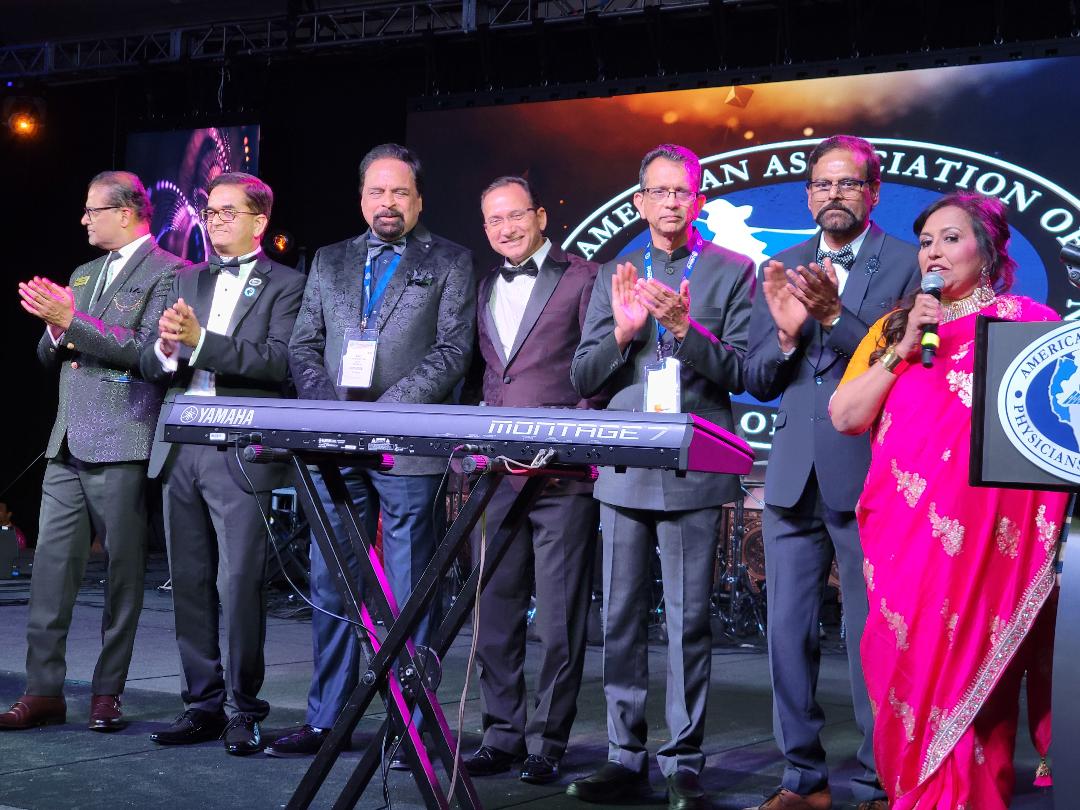 In an official communication sent out to the members of the AAPI’s General Boy, Dr. Kathula stated: “According to the current bylaws (Article VI) the current Executive Committee (EC) term is one year which ended on July 8, 2024. The new Executive Committee’s term started on July 9, 2024.”
In an official communication sent out to the members of the AAPI’s General Boy, Dr. Kathula stated: “According to the current bylaws (Article VI) the current Executive Committee (EC) term is one year which ended on July 8, 2024. The new Executive Committee’s term started on July 9, 2024.”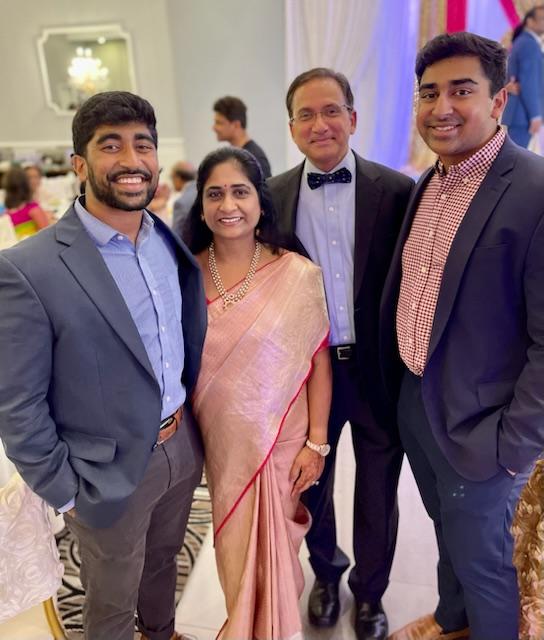 Dr. Kathula, who graduated from Siddhartha Medical College, Vijayawada, Andhra Pradesh, India in 1992 is a clinical professor of medicine at Wright State University-Boonshoft School of Medicine, Dayton, Ohio. Dr. Kathula is a Diplomate of the American Board of Lifestyle Medicine. He has authored several papers and articles in medical journals and is in the process of writing a book, describing his journey as an immigrant physician. “For the past 22 years, I’ve been proudly serving as a Hematologist and Oncologist in the Dayton community, considering it my home:”
Dr. Kathula, who graduated from Siddhartha Medical College, Vijayawada, Andhra Pradesh, India in 1992 is a clinical professor of medicine at Wright State University-Boonshoft School of Medicine, Dayton, Ohio. Dr. Kathula is a Diplomate of the American Board of Lifestyle Medicine. He has authored several papers and articles in medical journals and is in the process of writing a book, describing his journey as an immigrant physician. “For the past 22 years, I’ve been proudly serving as a Hematologist and Oncologist in the Dayton community, considering it my home:”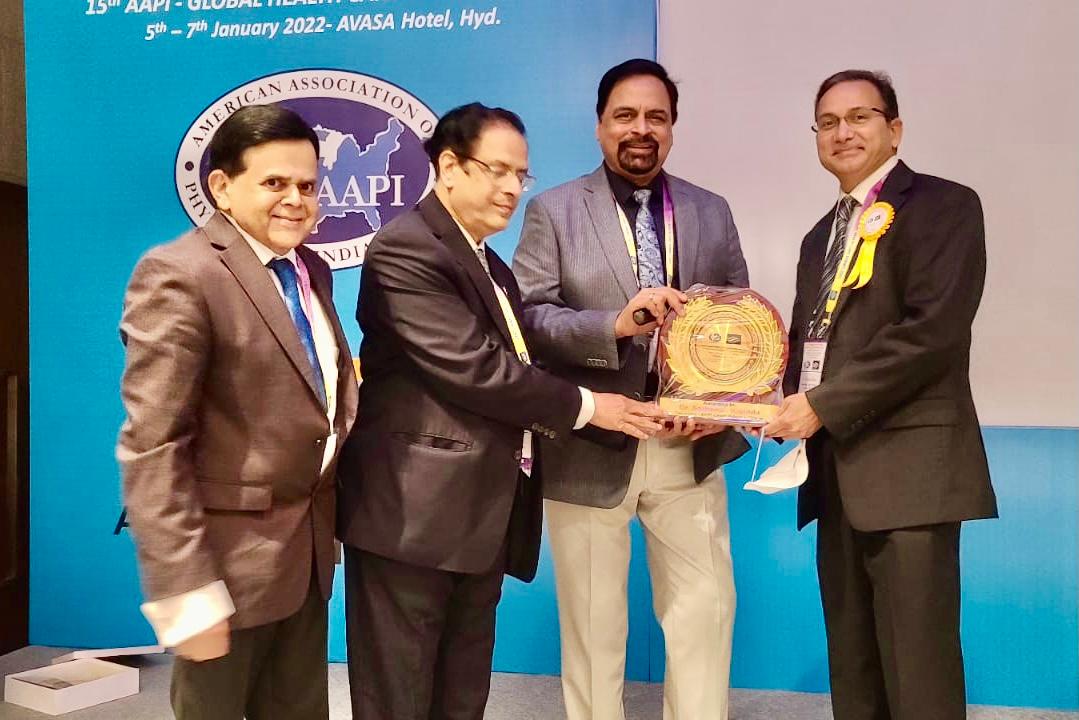 Recalling his long association with AAPI, which he has come to call his 2nd family, Dr. Kathula says, “My first experience with medical conventions occurred at the AAPI annual convention in 1995, graced by then-President Bill Clinton. Inspired, I formally joined AAPI in 2002, though my active involvement commenced in 2009, assuming the role of the governing body member of AAPI. Later on, I won all four national elections I contested, supported by esteemed AAPI members.”
Recalling his long association with AAPI, which he has come to call his 2nd family, Dr. Kathula says, “My first experience with medical conventions occurred at the AAPI annual convention in 1995, graced by then-President Bill Clinton. Inspired, I formally joined AAPI in 2002, though my active involvement commenced in 2009, assuming the role of the governing body member of AAPI. Later on, I won all four national elections I contested, supported by esteemed AAPI members.”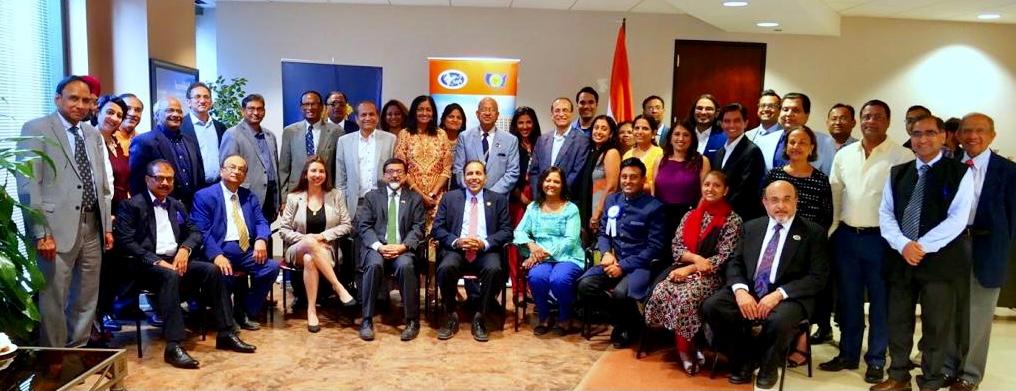 In his inaugural note, Dr. Kathula assured all AAPI members and all physicians of Indian origin that “I will sincerely work for the betterment of our beloved organization, AAPI.”
In his inaugural note, Dr. Kathula assured all AAPI members and all physicians of Indian origin that “I will sincerely work for the betterment of our beloved organization, AAPI.”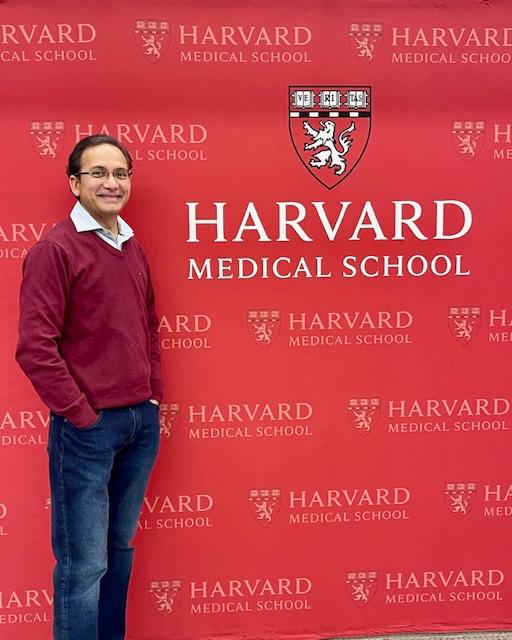 Dr. Kathula has laid out his vision for AAPI on his website:
Dr. Kathula has laid out his vision for AAPI on his website: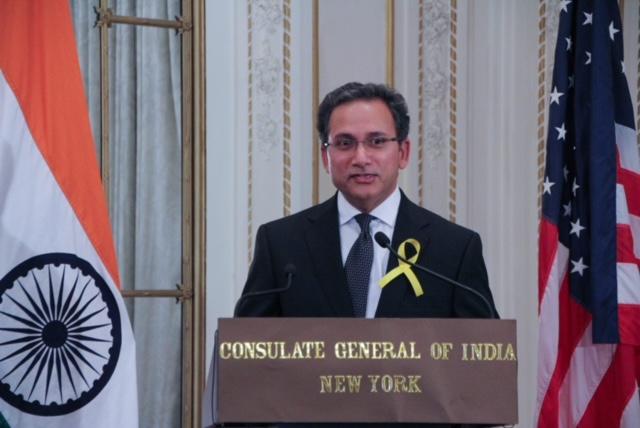 He has been actively involved in community service locally, nationally, and internationally for the last two decades. Dr. Kathula was instrumental in raising funds for the construction of the Om Shanti Hindu Cultural Center in Dayton. He is also the President and Founding Member of the Association of Indian Physicians from Ohio. He has served on several non-profit boards, dedicating his time, skills, and resources for the greater good of the larger community. Dr. Kathula served on the Board of Trustees of the Leukemia and Lymphoma Society (Dayton chapter) and has raised more than $200,000 for some of its initiatives. The society conferred on him the Man of the Year Award in 2010. Dr. Kathula received Hind Rattan Award in 2010, given by the NRI Welfare Society of India for his outstanding contributions. He was awarded ‘Man of the Year – 2018’ by the Leukemia and Lymphoma Society.
He has been actively involved in community service locally, nationally, and internationally for the last two decades. Dr. Kathula was instrumental in raising funds for the construction of the Om Shanti Hindu Cultural Center in Dayton. He is also the President and Founding Member of the Association of Indian Physicians from Ohio. He has served on several non-profit boards, dedicating his time, skills, and resources for the greater good of the larger community. Dr. Kathula served on the Board of Trustees of the Leukemia and Lymphoma Society (Dayton chapter) and has raised more than $200,000 for some of its initiatives. The society conferred on him the Man of the Year Award in 2010. Dr. Kathula received Hind Rattan Award in 2010, given by the NRI Welfare Society of India for his outstanding contributions. He was awarded ‘Man of the Year – 2018’ by the Leukemia and Lymphoma Society.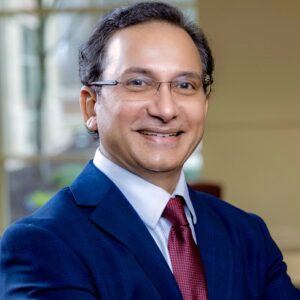 Dr. Kathula gives credit to several mentors who have helped shape his outlook on life. “My life’s journey has been enriched by countless mentors and inspirations from all walks of life, each contributing to my personal and professional growth.”
Dr. Kathula gives credit to several mentors who have helped shape his outlook on life. “My life’s journey has been enriched by countless mentors and inspirations from all walks of life, each contributing to my personal and professional growth.”